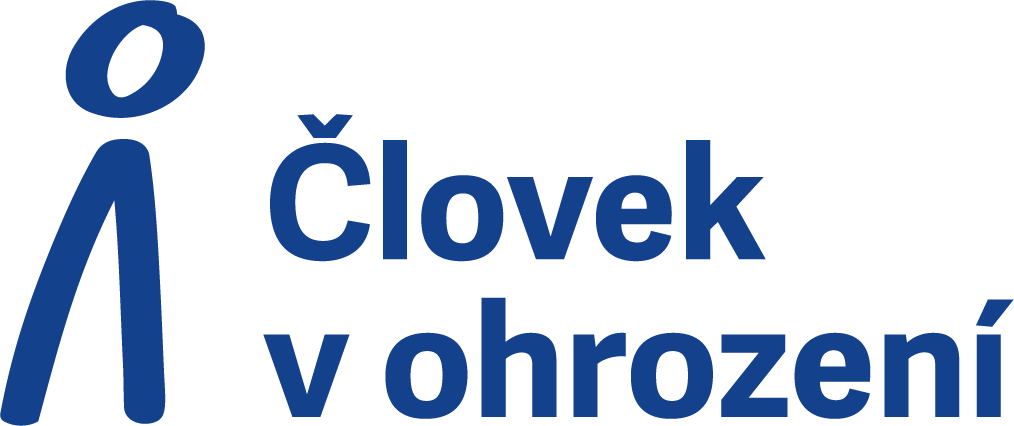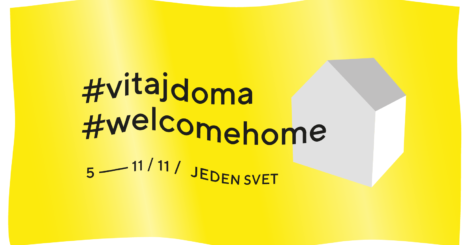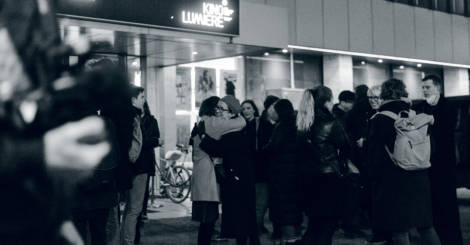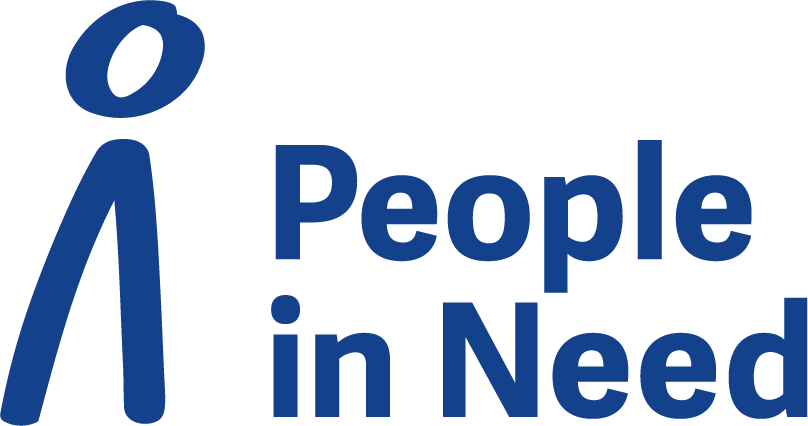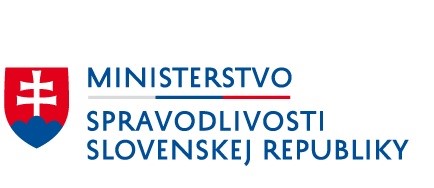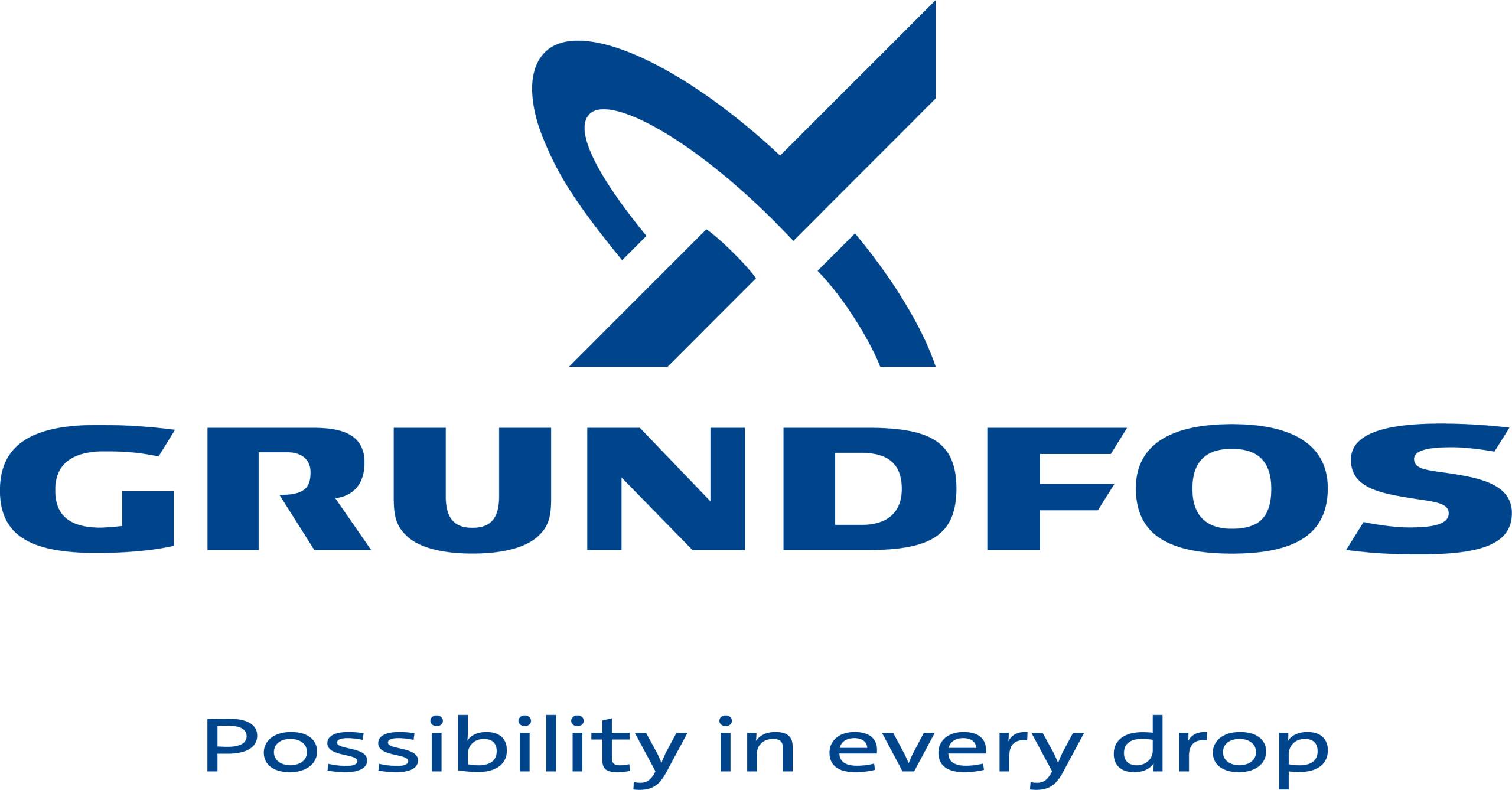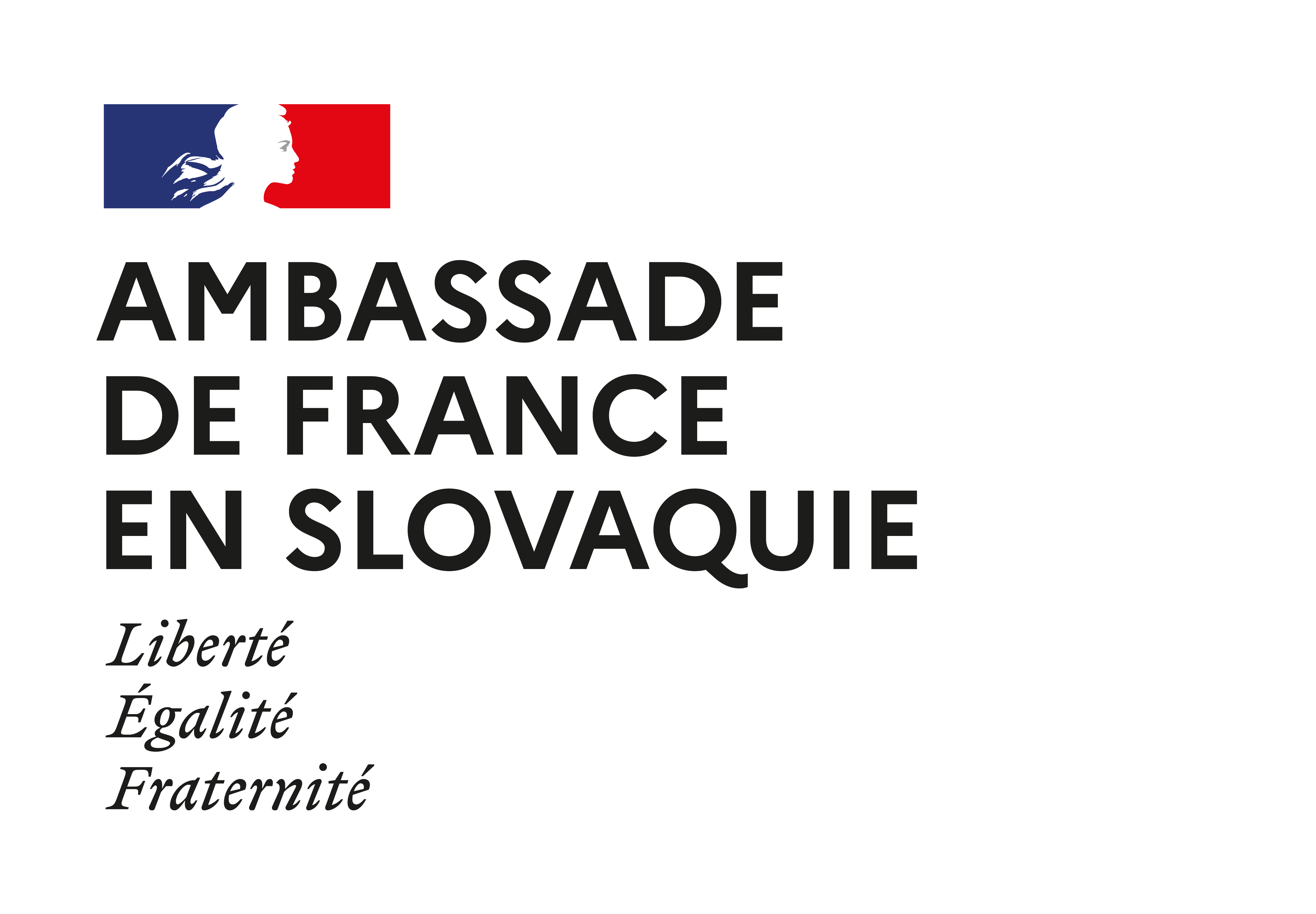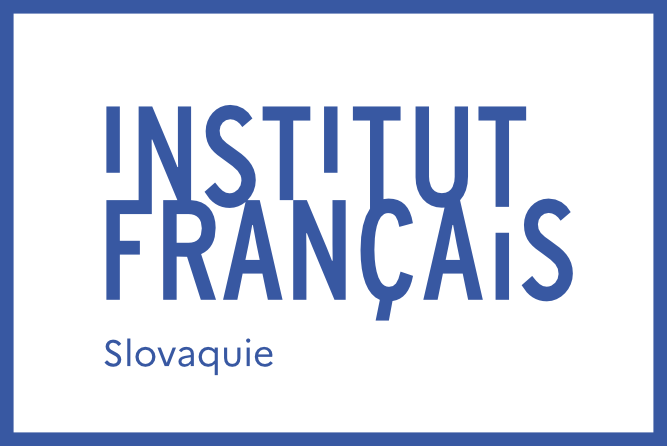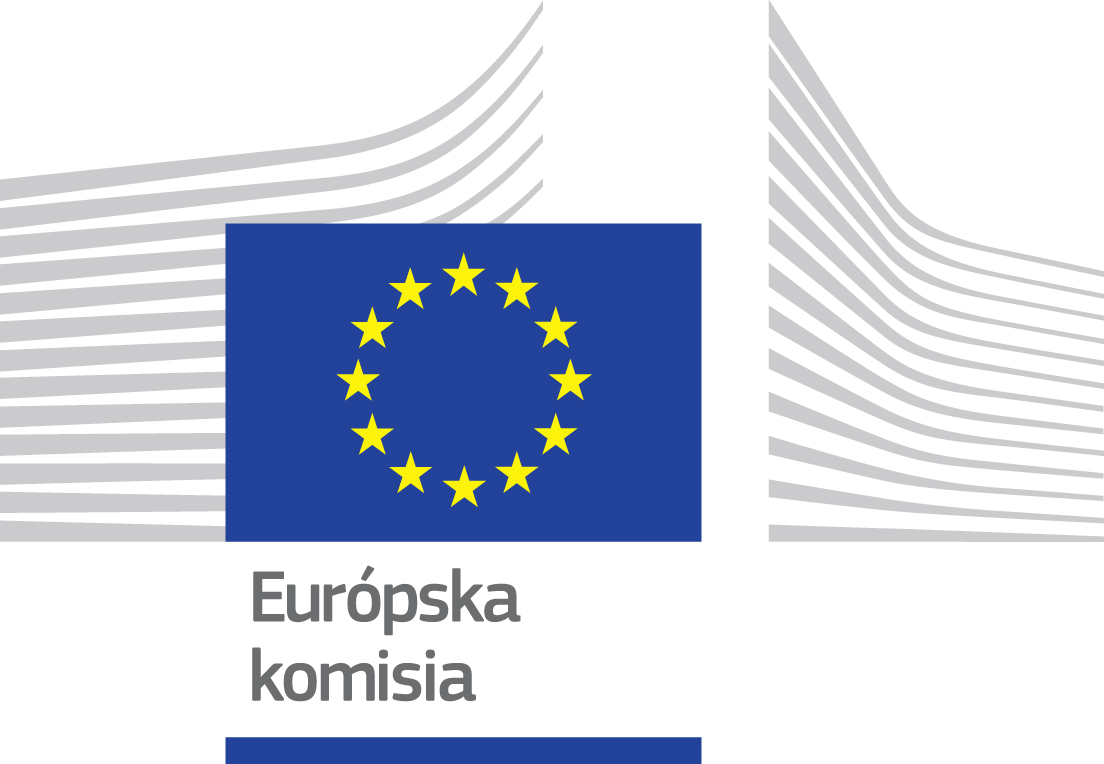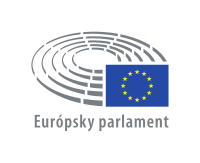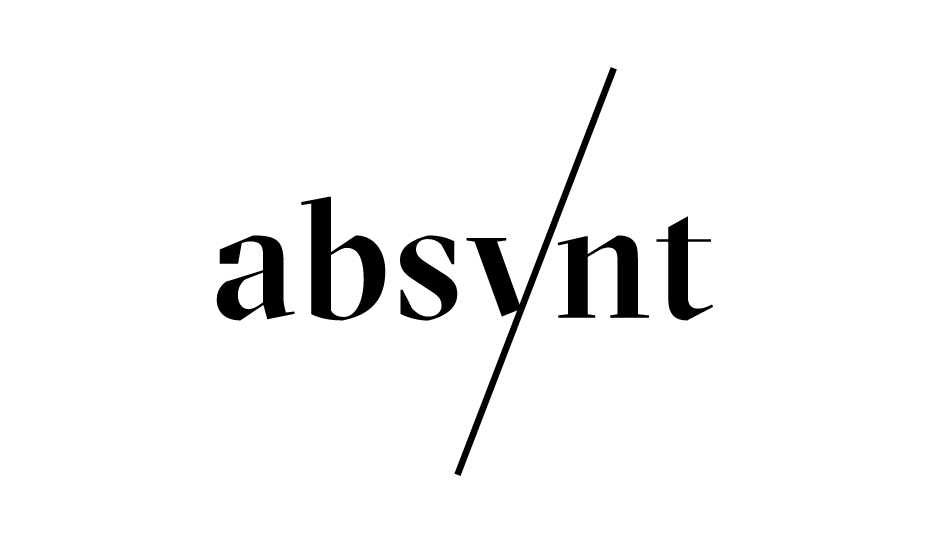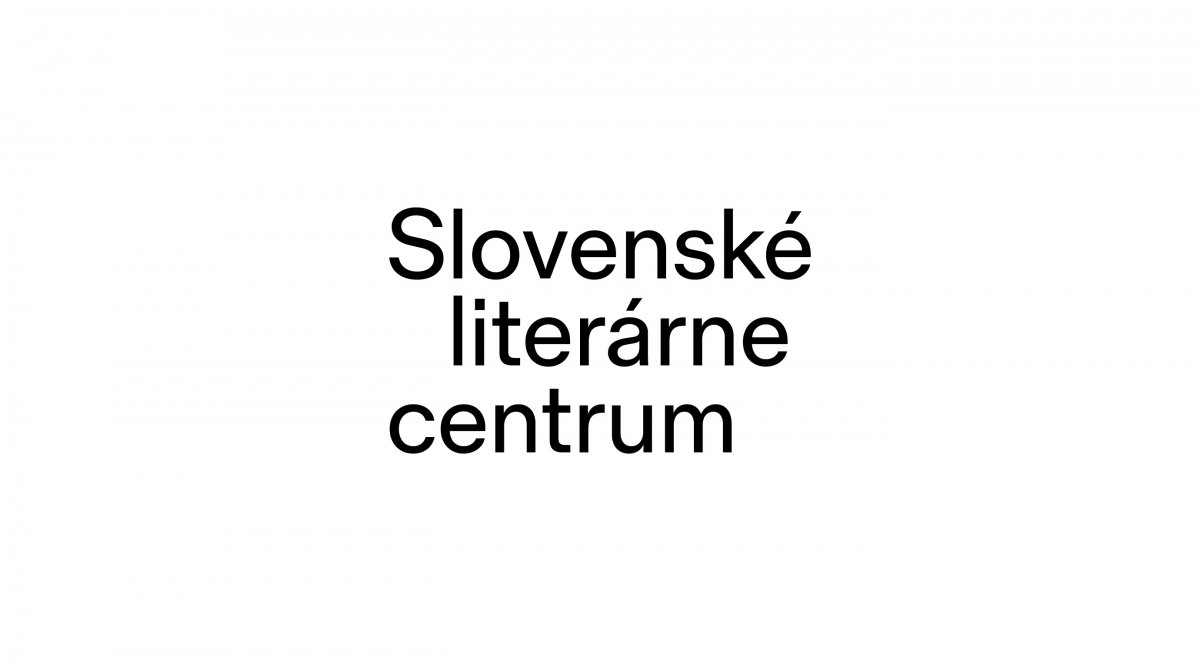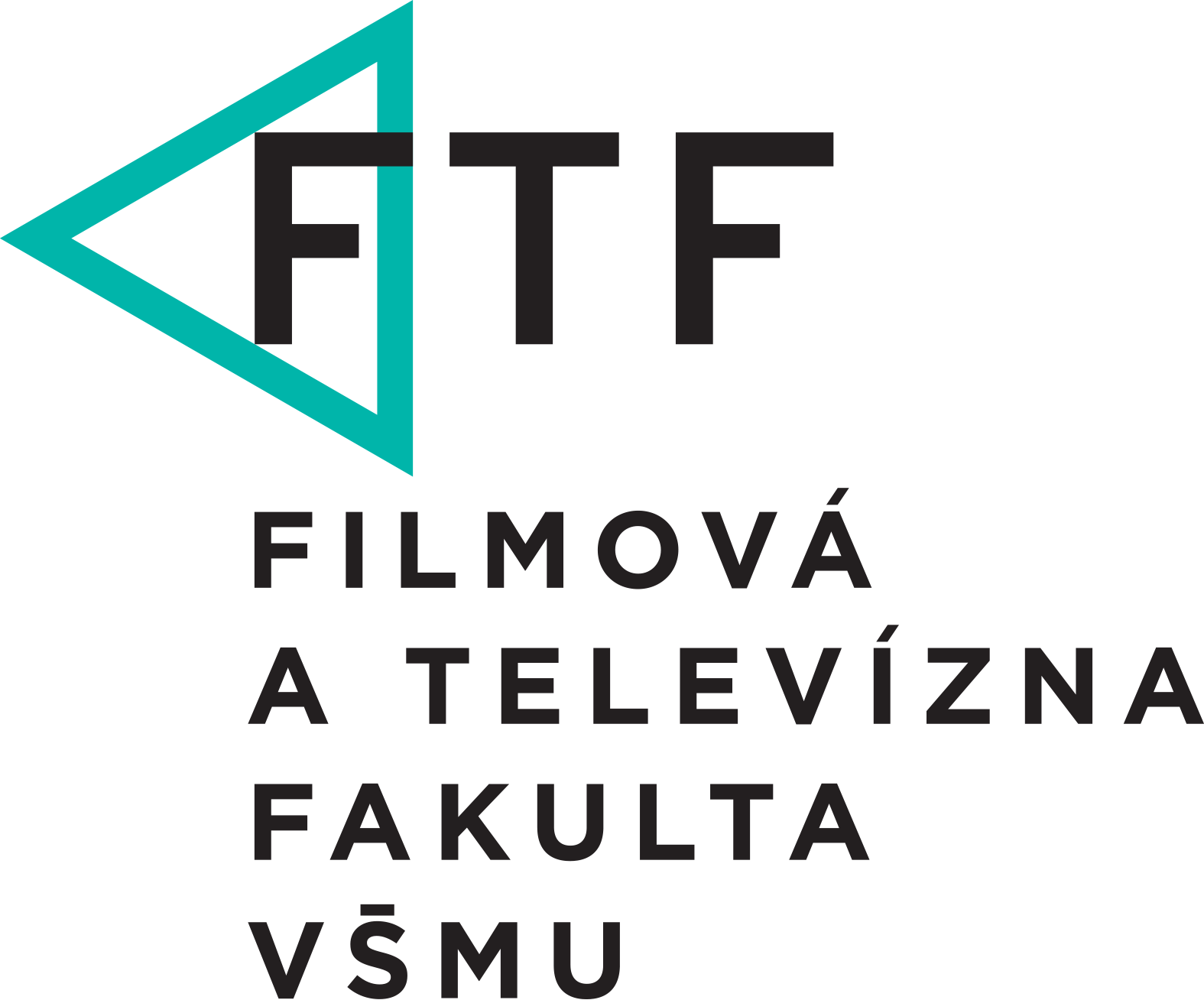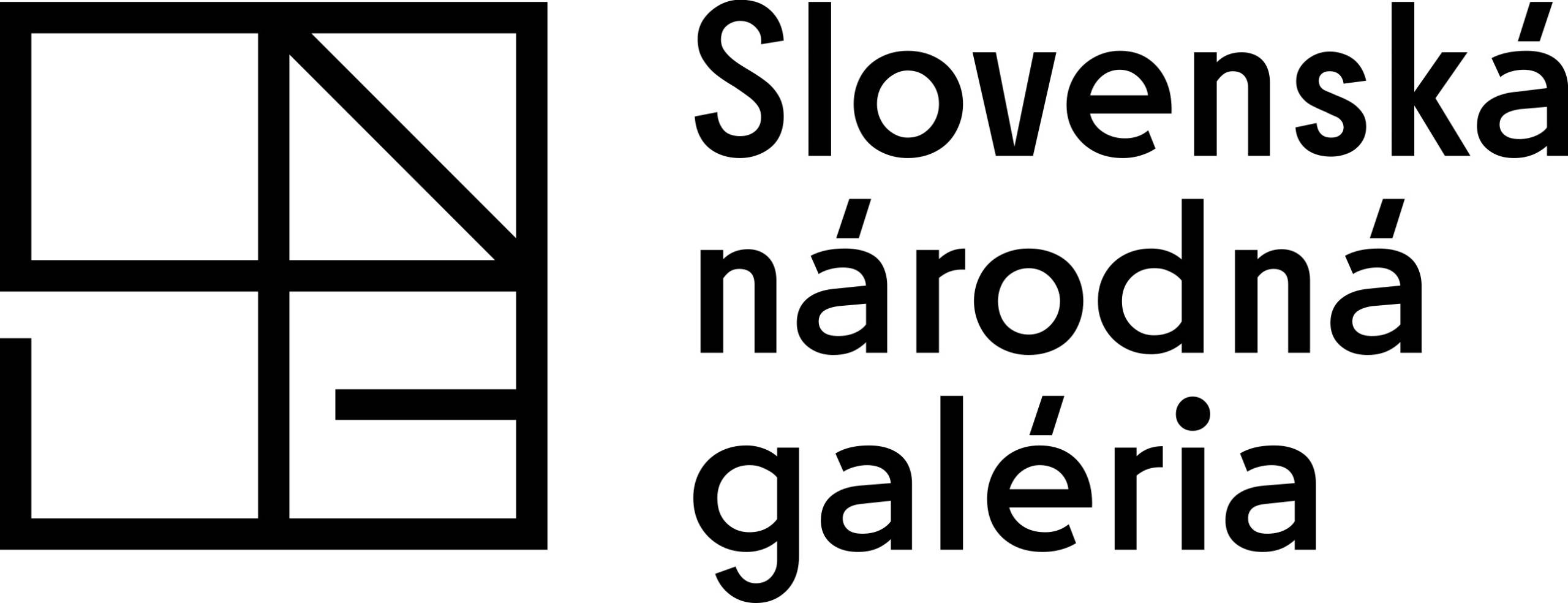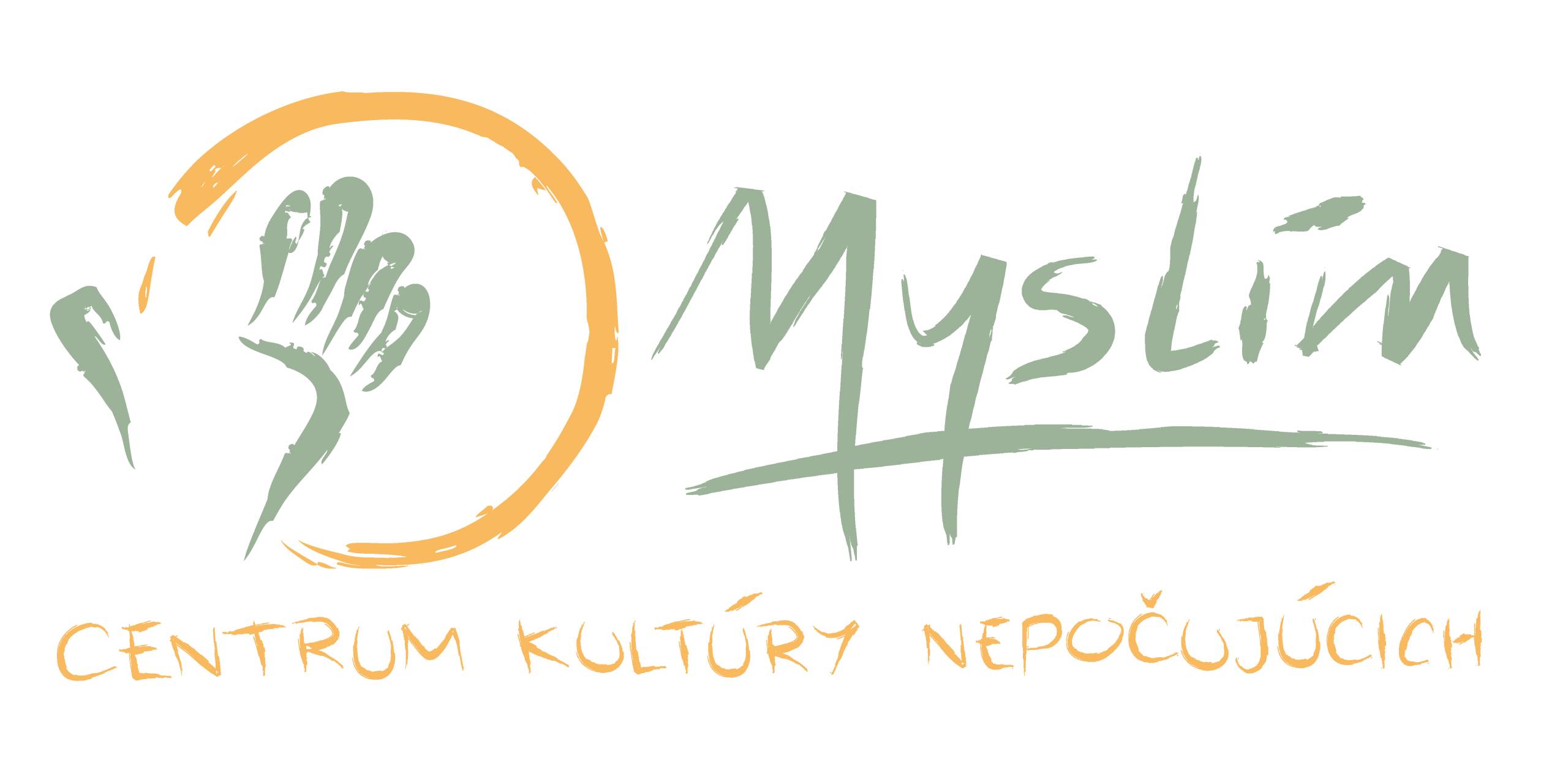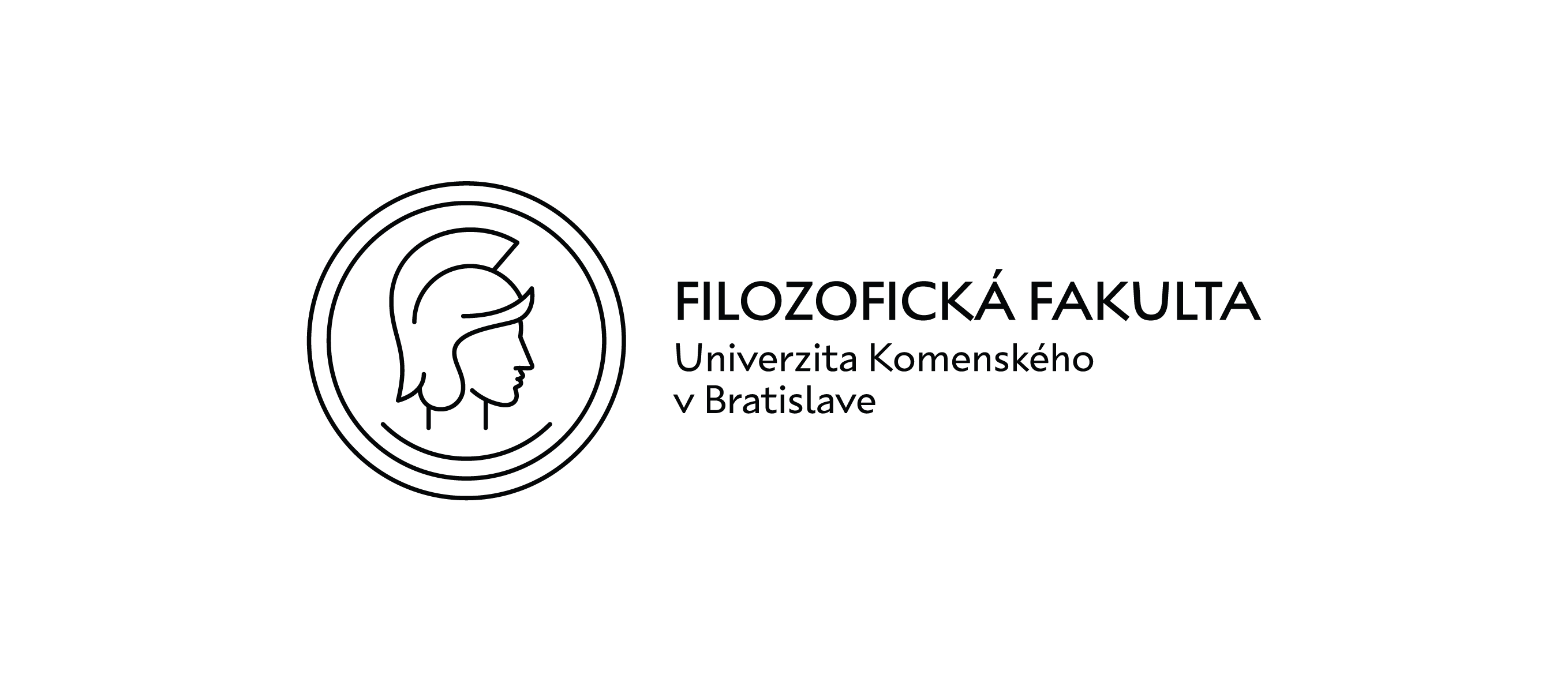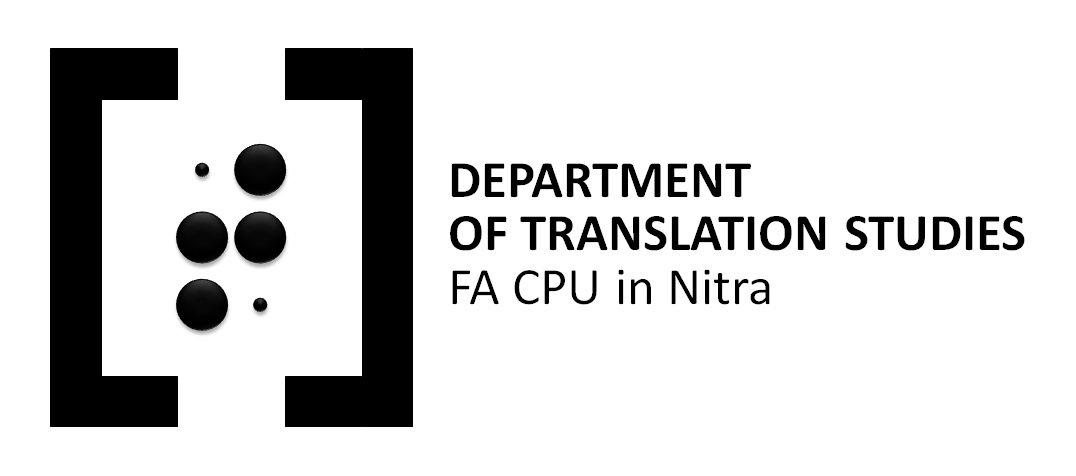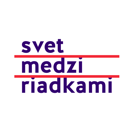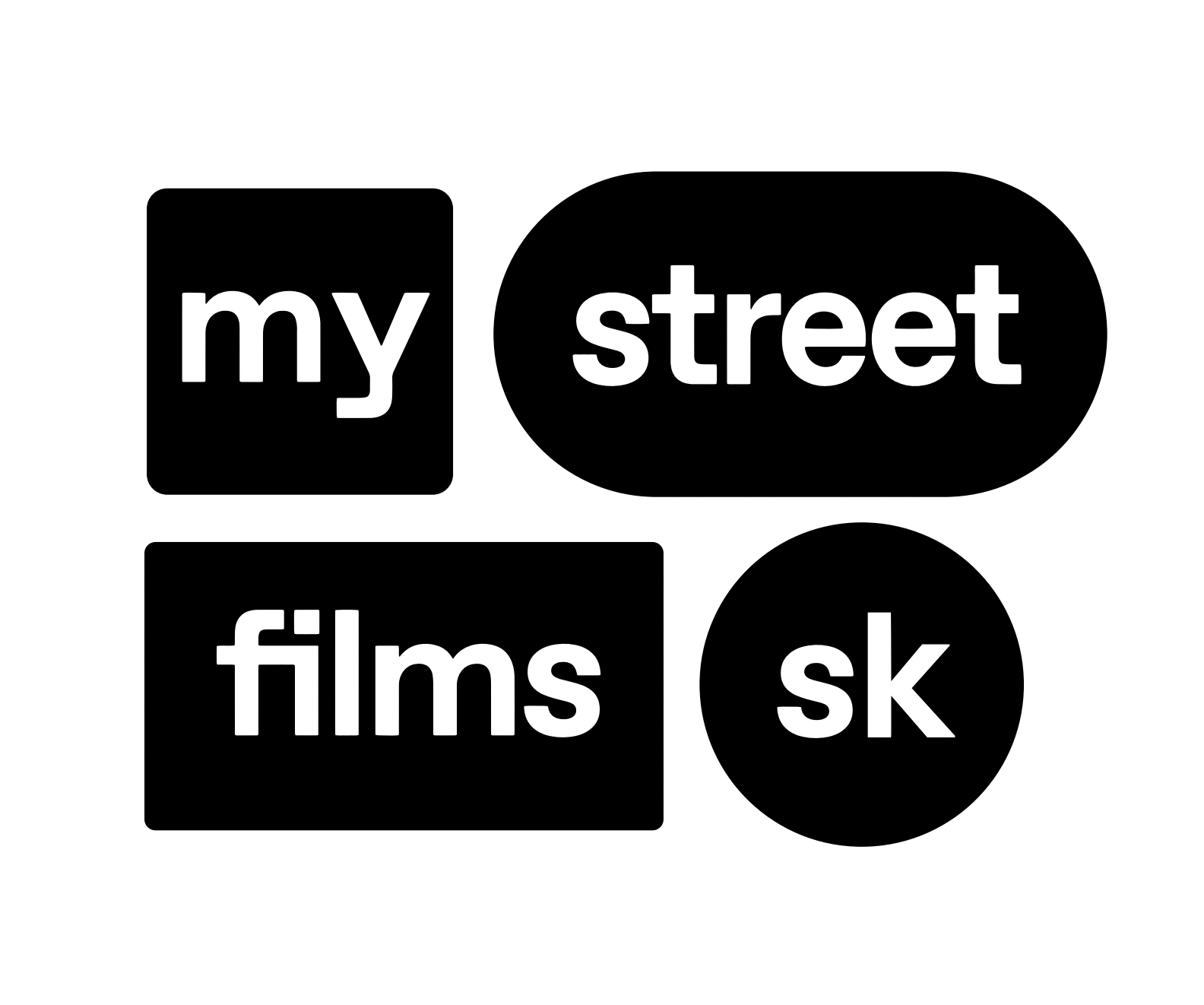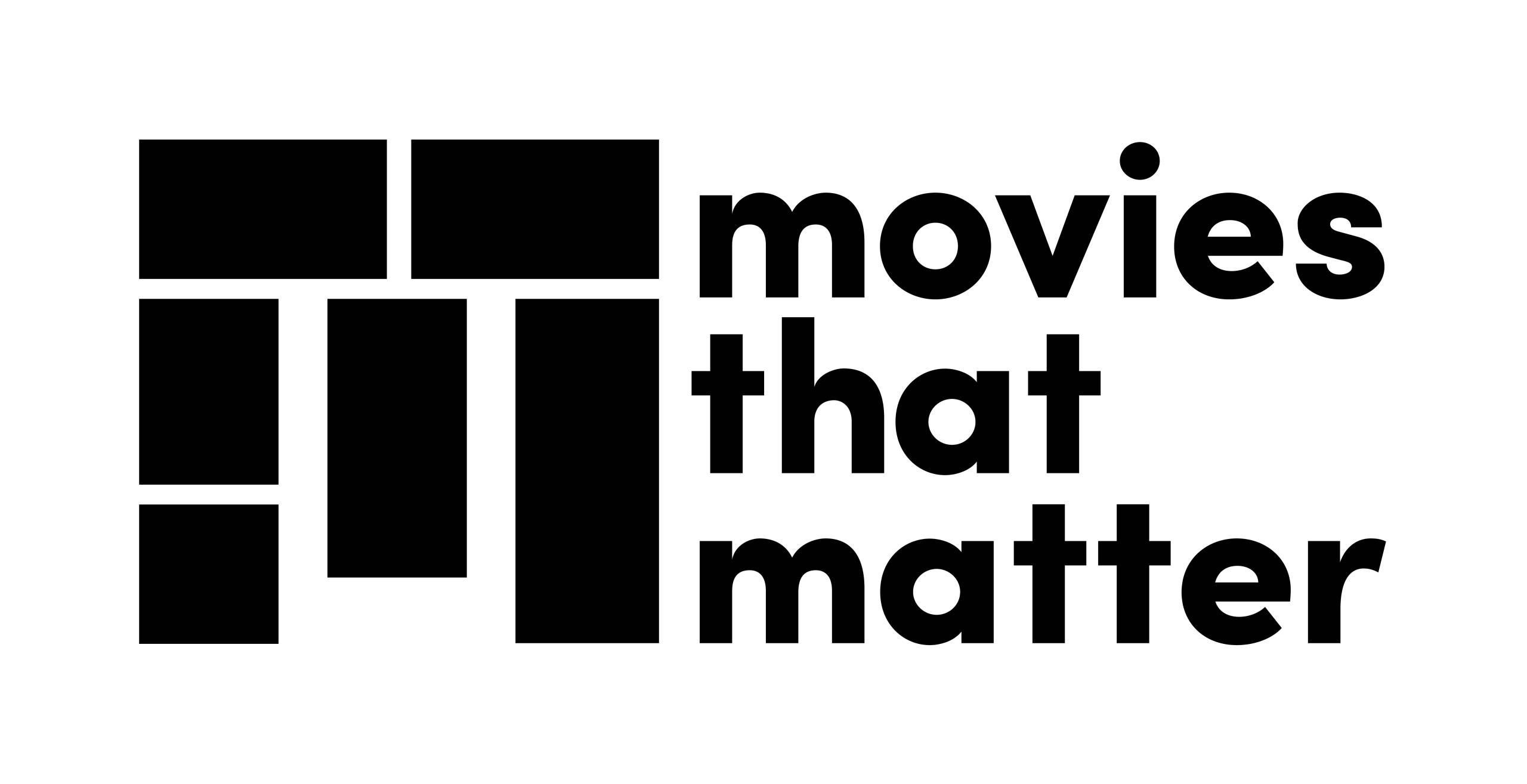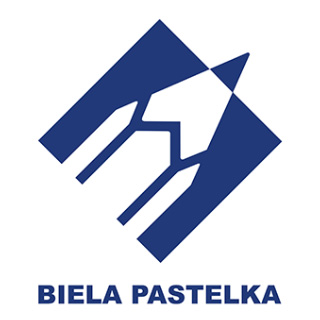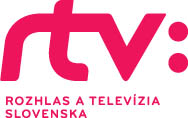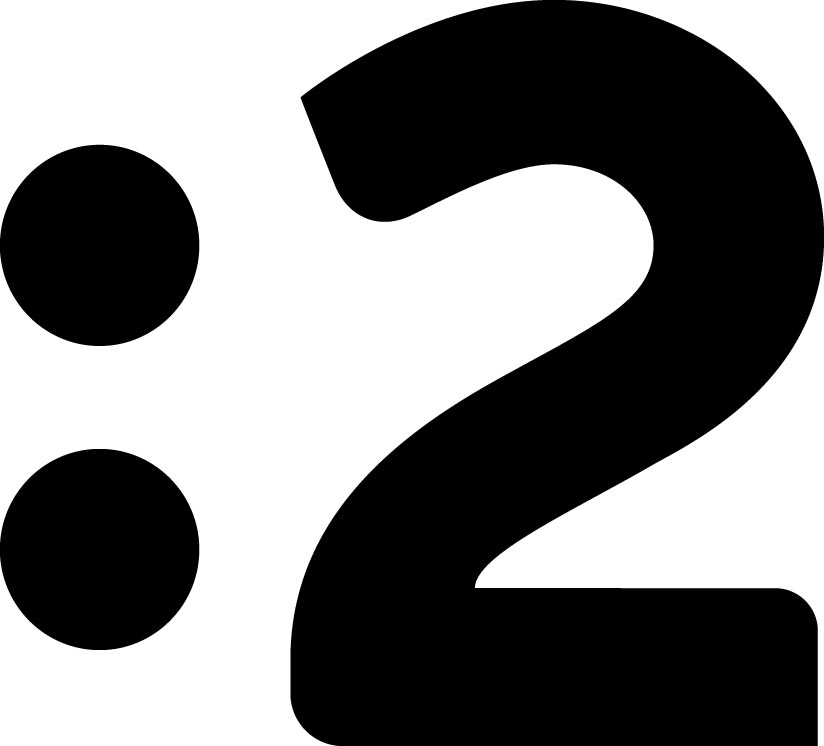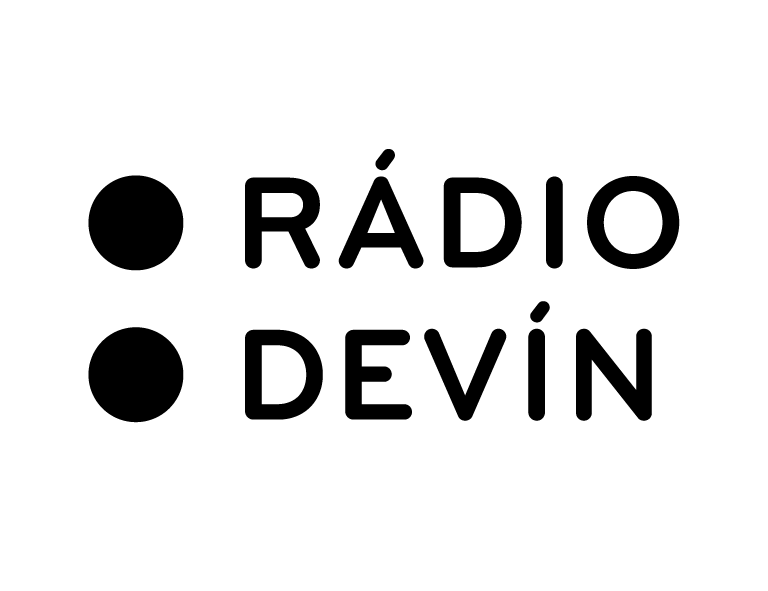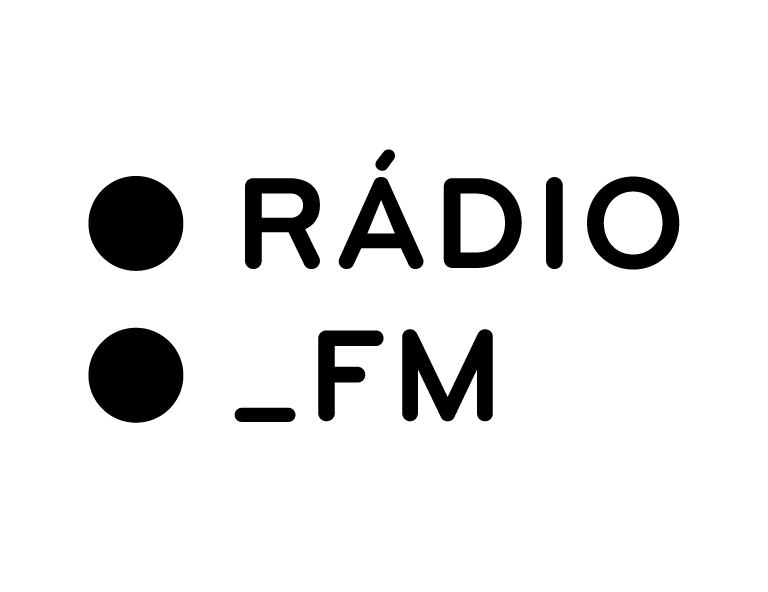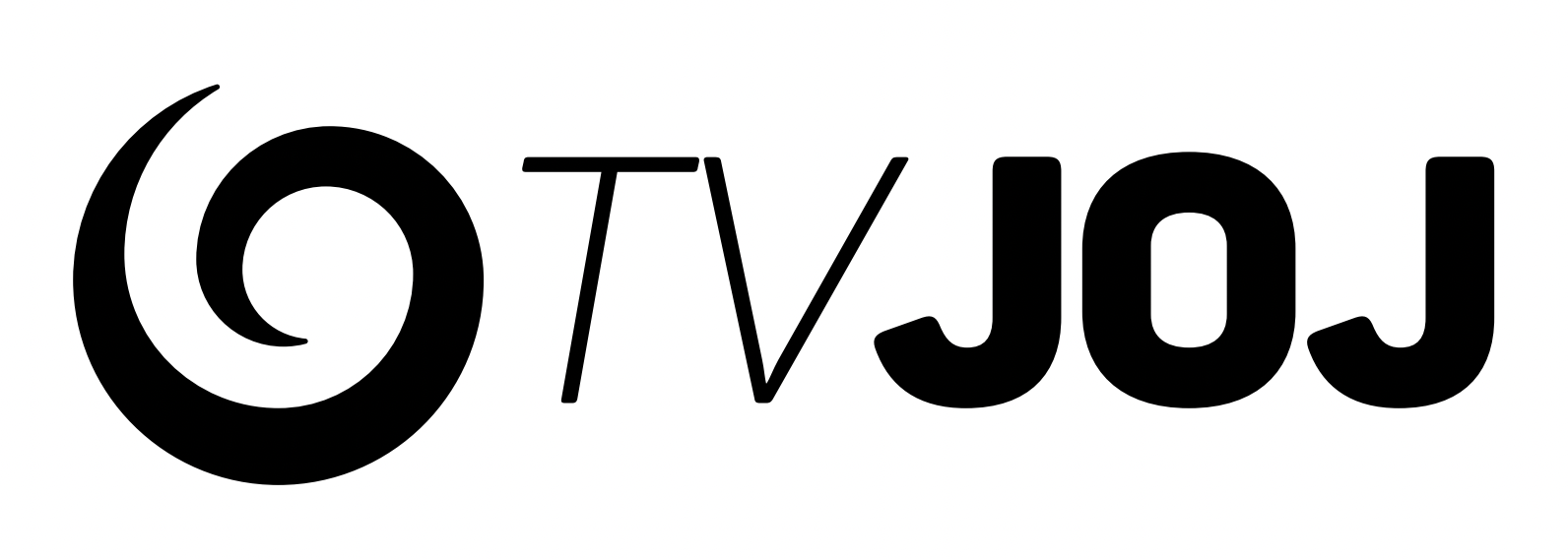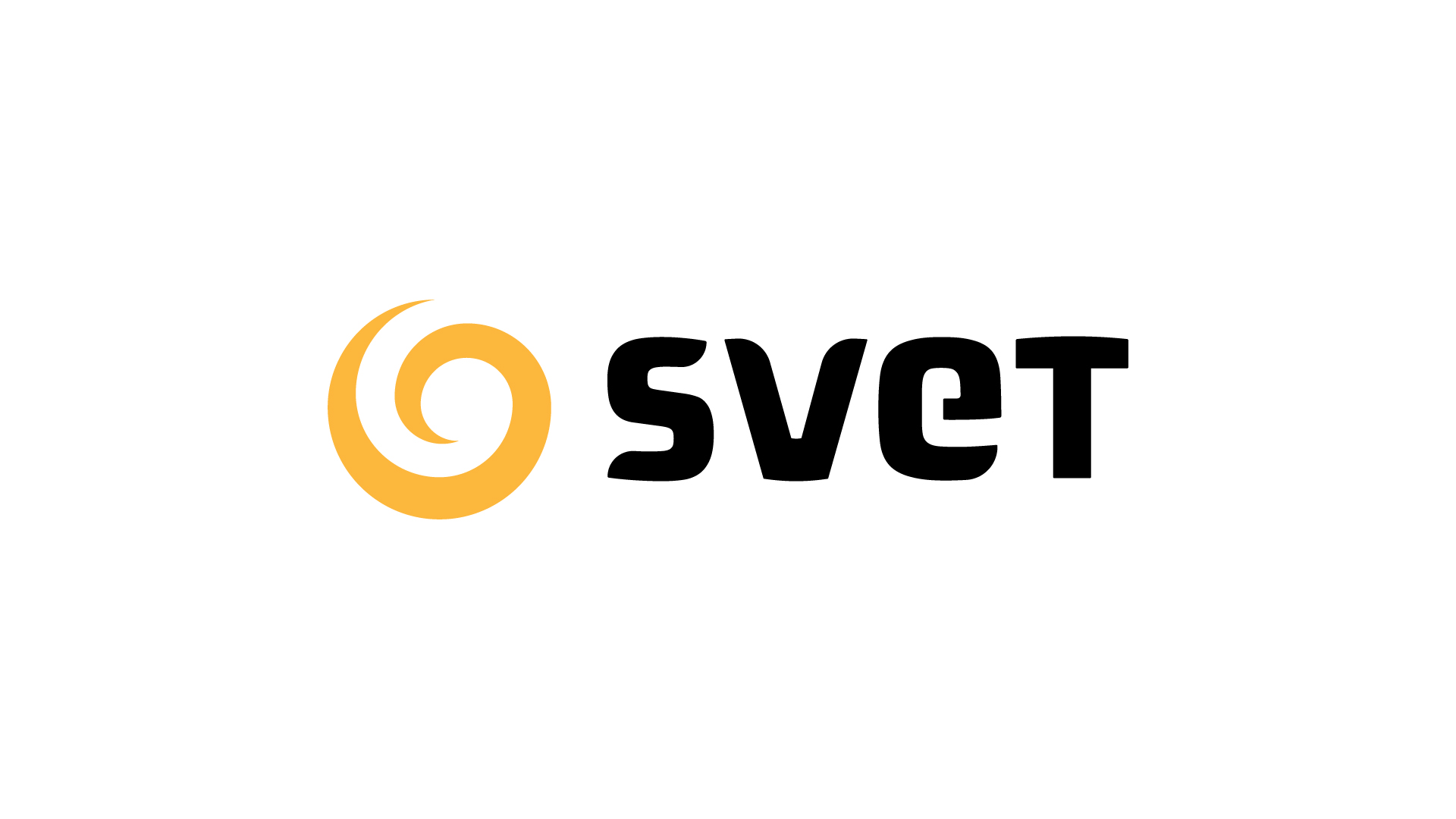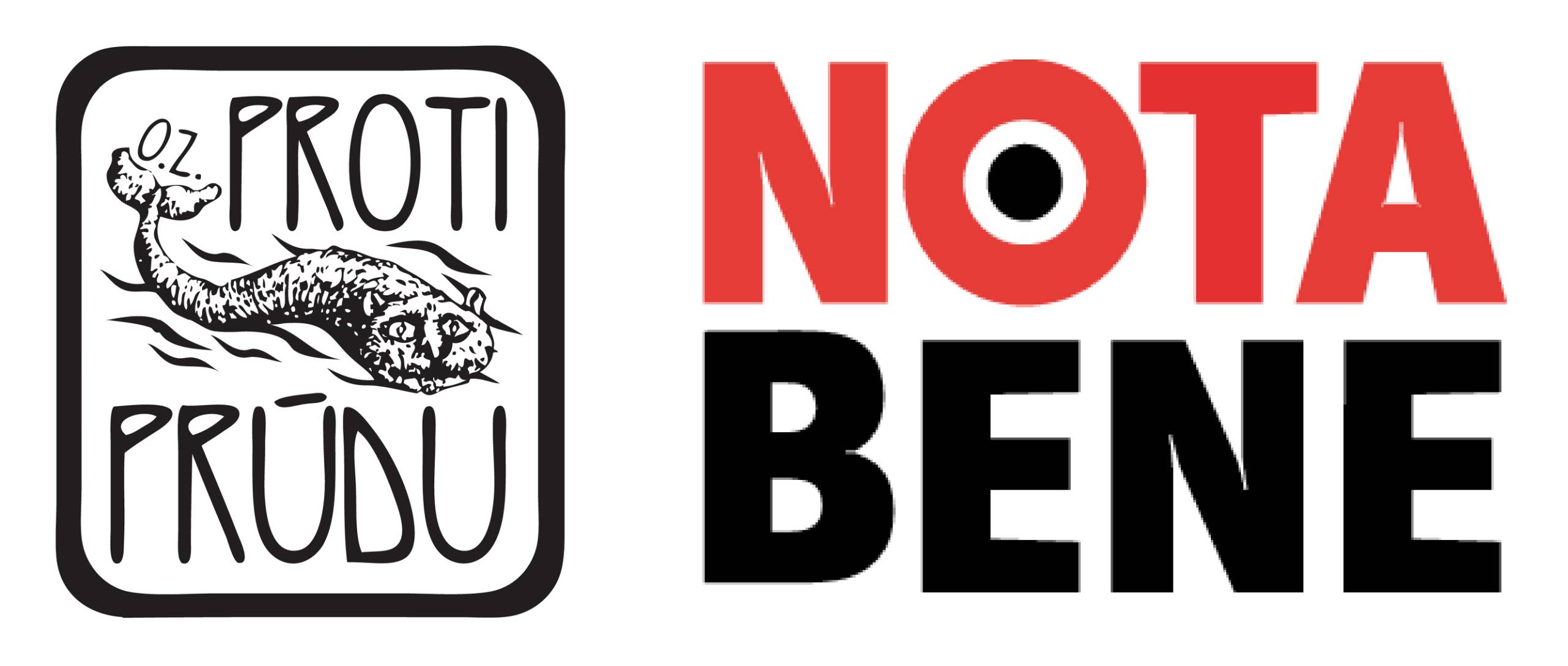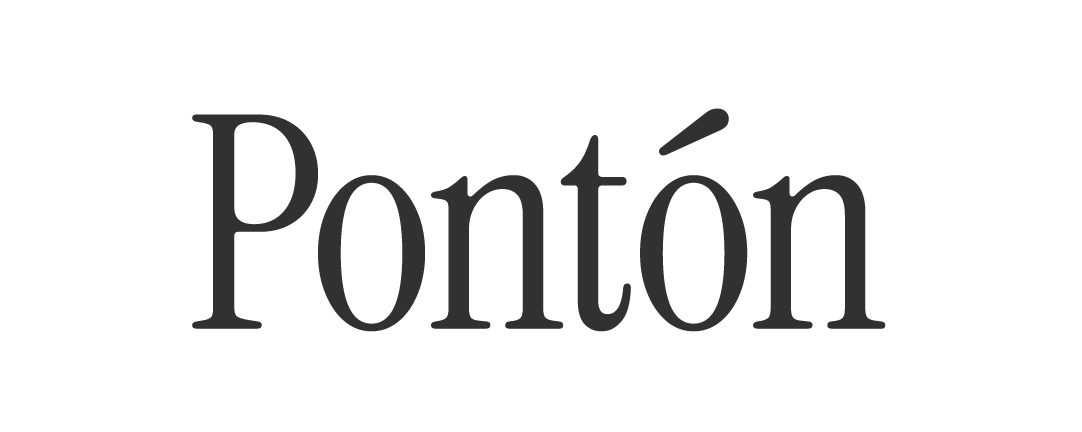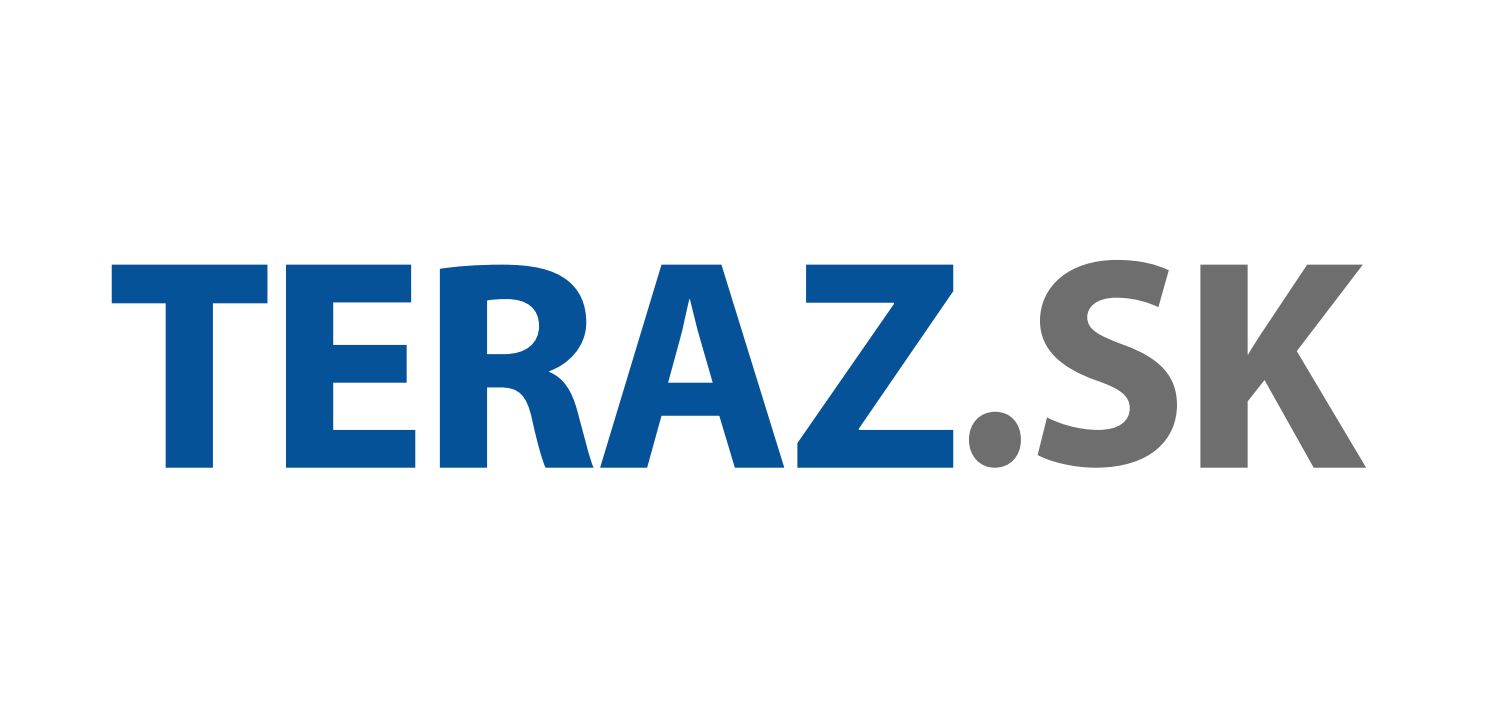The basic principle of the 24th year of One World was care for one another and community building (Final Report)
Content
- One World in numbers
- Inclusive design
- A hearing impaired director from Los Angeles, also a Ukrainian documentary filmmaker with experience directly from the war trenches
- Winning Films
- One World in Schools
- Visibility of the festival
- This year, One World opened sensitive topics live and involved viewers from all over Slovakia through streaming
- Industry programme Days of Change for Slovak filmmakers and audiences interested in social change
- We care about people and the environment
- One World brings together those who share the same view of the world and society
- Partners of the One World
In 2023, the One World Festival took place in a hybrid form for the third time. In cooperation with the portal DAFilms.sk, 27 public screenings were made available online, and 36 public screenings were made available live in cinemas. The main theme of the year was LOVE.
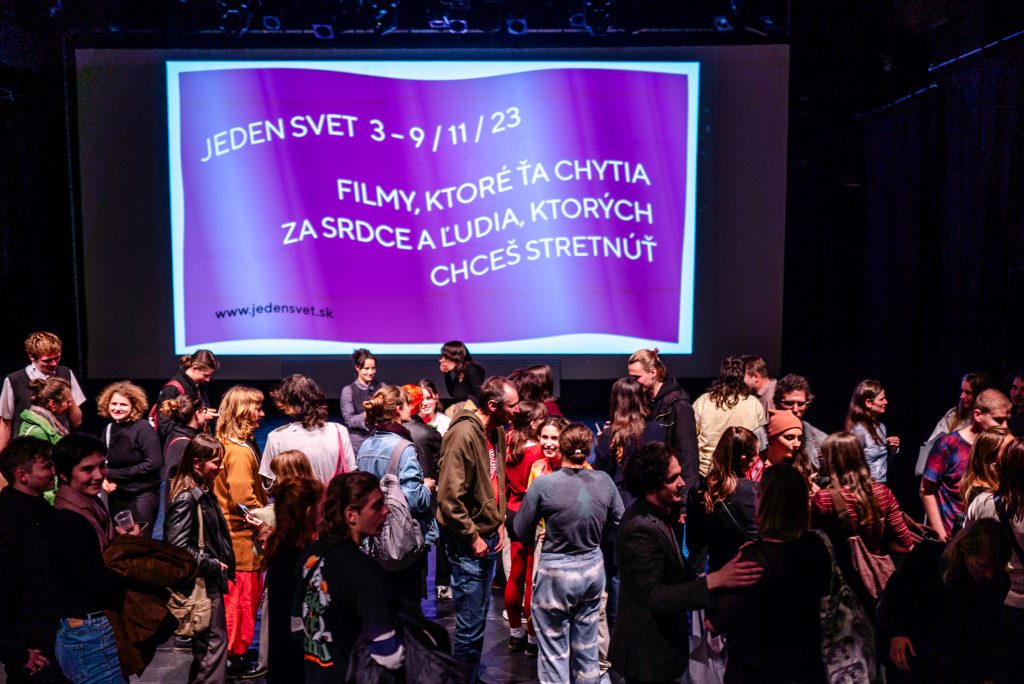
Just like last year, the online version allowed the festival to make its content available to male and female viewers from different parts of Slovakia. In addition, parents on parental leave, physically disabled people, and others who for various reasons cannot afford to attend screenings in cinemas. A novelty was the possibility to watch all the films in the online offer unlimitedly during the whole week and an inclusive pricing policy. It included online accreditation available from 2 euros. For the first time, One World presented a block of short films for children in cooperation with festival Fest Anča.
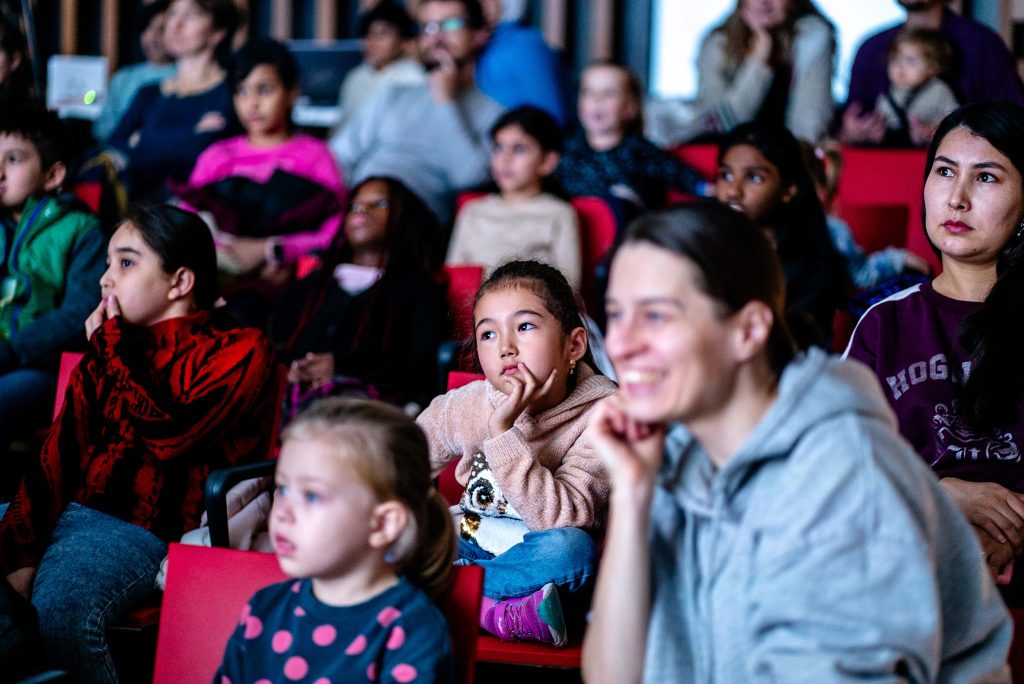
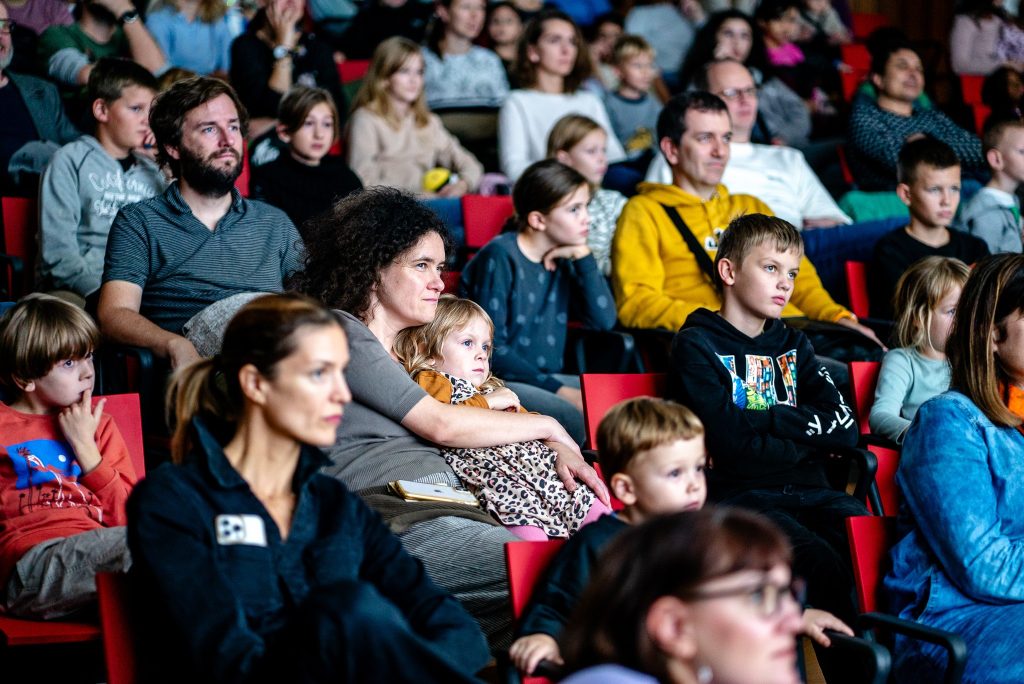
The programme in the cinemas allowed male and female viewers to enjoy an atmosphere of lively meetings, mutual support, and inspiring dialogue. It brought premieres of new Slovak, Czech but also international films with the participation of their creators, and after the screenings there were often lively discussions for an hour. During the festival week, not only conversations but also new collaborations and friendships happened, bringing together areas and communities that had only known of each other marginally until then. For example, a visually impaired viewer with a Hungarian impact producer, or an American director with her Serbian music producer, whom she met live in Bratislava for the first time.
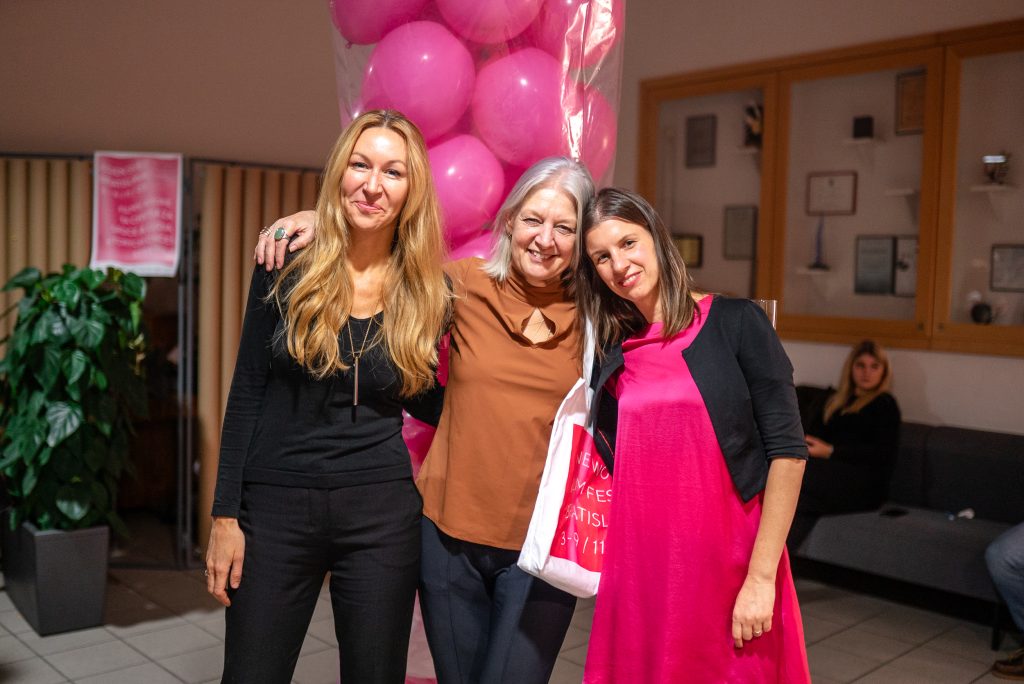
One World in numbers
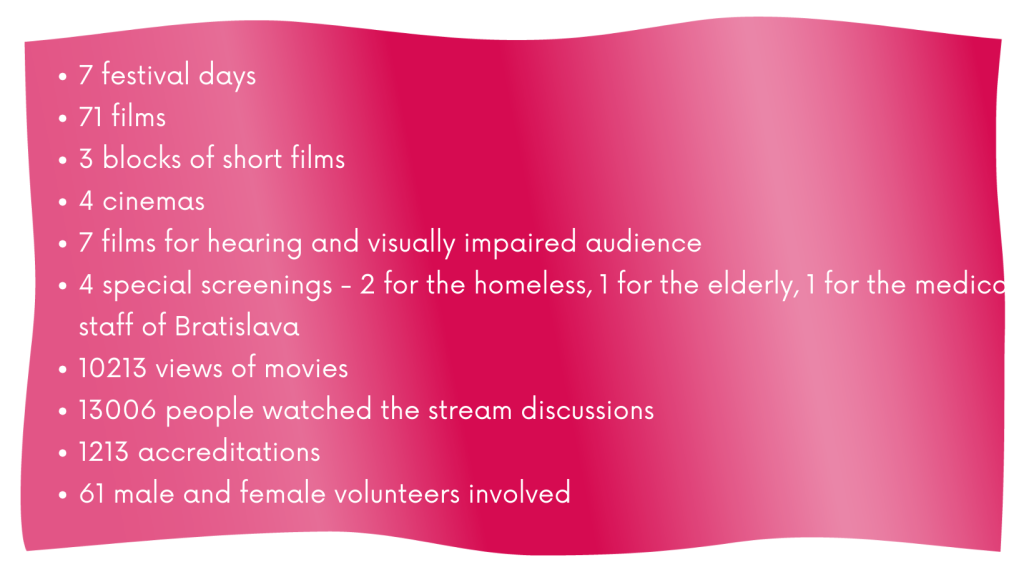
Inclusive design
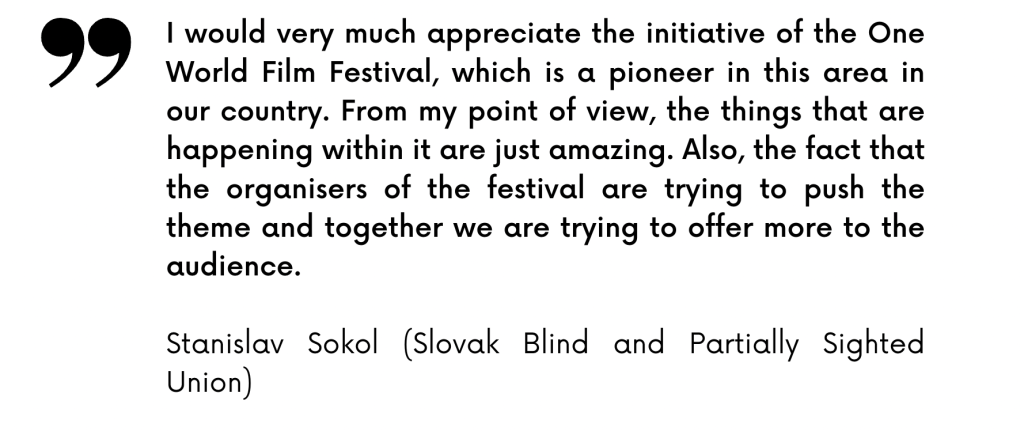

For the fourth year, One World is gradually making its program accessible to various disadvantaged groups of viewers, such as the blind and partially sighted, the hearing impaired, the homeless, the elderly, parents with young children on parental leave and others. The fact that inclusion now lies at the foundation of the festival’s organisation is evidenced by the opening of the festival. One World 2023 was opened with a film by an American hearing impaired director and the invited guests were accompanied by the hearing impaired moderator Michal Hefty during the gala dinner.
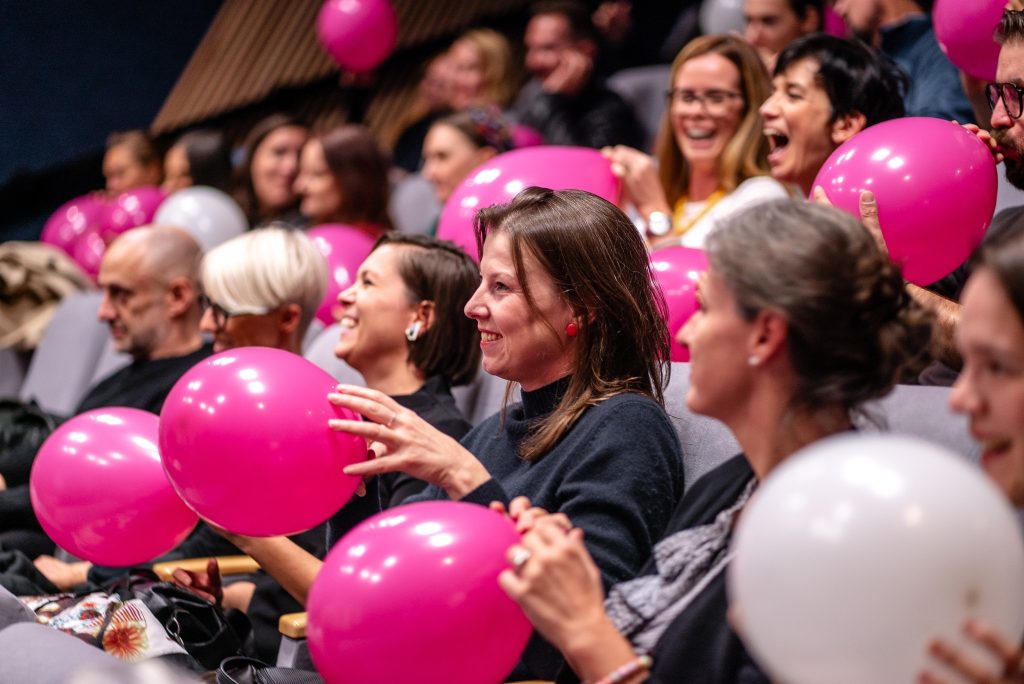
After four years of work on inclusive design and its communication externally, it can be said that One World has become a clearly visible pioneer of this topic in the Slovak audiovisual environment, but also directly in the audience communities affected by this topic, in the eyes of crucial cultural and audiovisual institutions, including the Ministry of Culture, and in the eyes of the public.
In 2023, One World made 4 cinema screenings and 3 online screenings available to deaf, blind, and partially sighted audiences. Discussions with the filmmakers after these cinema screenings were interpreted into Slovak sign language. One World not only makes screenings inclusive, which means that audiences with visual and hearing impairments watch films undisturbed together with regular audiences in one cinema with the help of special subtitles and audio description, but we also prepared meaningful accompanying activities for the hearing and visually impaired. For example, there was a discussion about the quality of the audio description after the screening of Aurora’s Sunrise, or a workshop on recording film sound in the field. Also, novelty was a change of approach to the festival’s popular Audience Award competition. This year, audiences with visual and hearing impairments were able to join in.
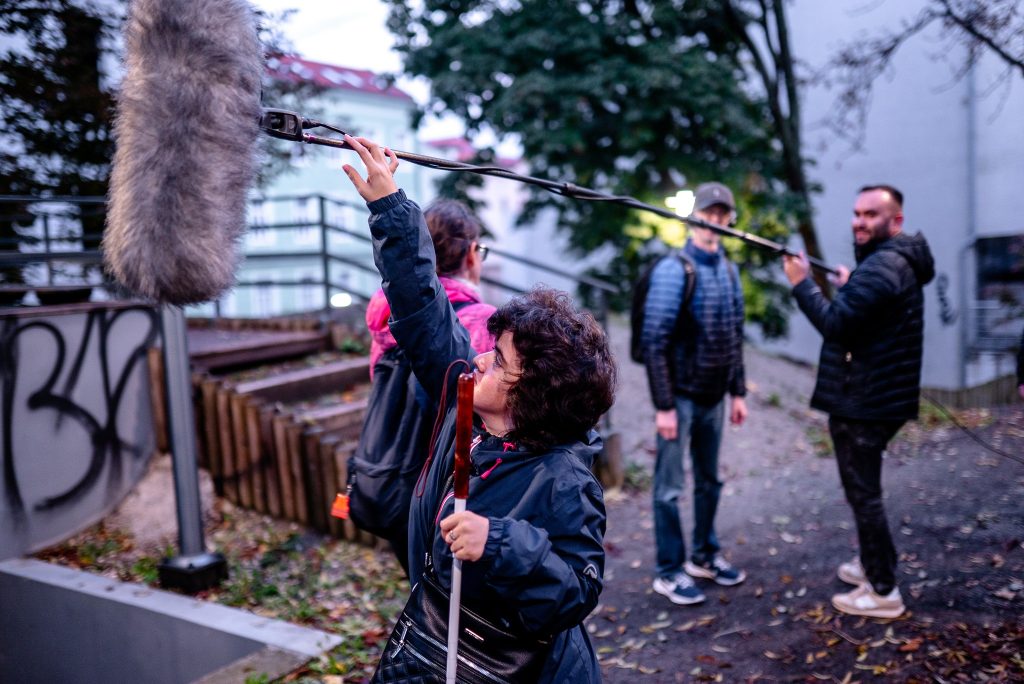
In cooperation with the Section of Social Affairs of the Bratislava City Hall, One World increased the accessibility of the programme also for seniors. The Section of Social Affairs invited 29 pro-senior organisations in 17 districts of the city to a selected part of the programme with enlarged Slovak subtitles.
For the second year, One World also included a special screening for the residents of the Dom tretieho veku, this time seniors watched a film of their own choice – the Spanish documentary Secret Agent.
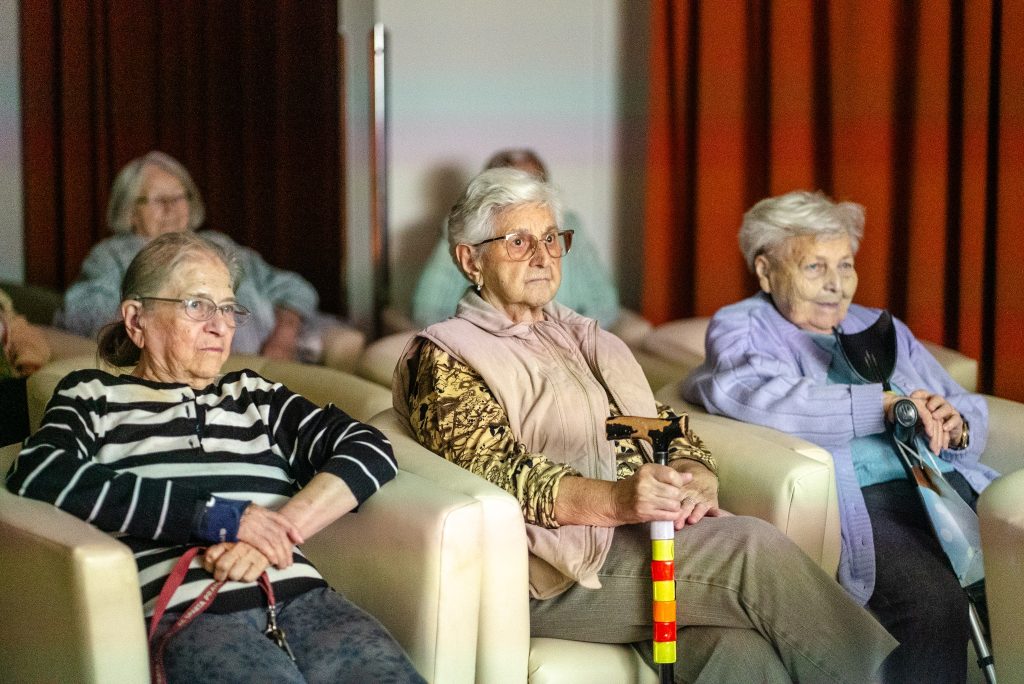
After last year’s successful screening in cooperation with OZ Vagus, this year’s screening was also held in the Domec Community Centre. This time homeless people together with the general public could watch a brand-new Slovak film All Men Become Brothers about the life of Alexander Dubček. After the screening, they discussed their impressions live in Domec with the director of the film, Rob Kirchoff. The discussion with the homeless people also took place this year after the screening of the Slovak film The Lines, which depicts the streets of Bratislava. Their residents met the director at the screening at the Nocľaháreň and the St. Vincent de Paul refuge.
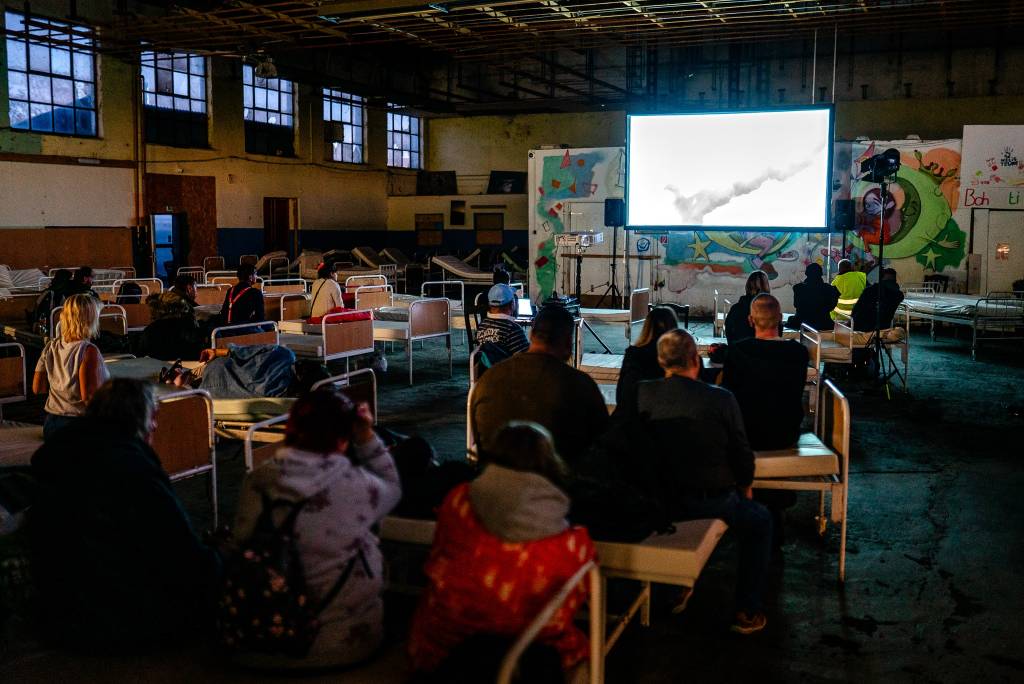
We managed to involve eight students of the Secondary vocational school for physically disabled Students from Mokrohájska cesta in Bratislava as full-fledged volunteers and trained special volunteers to help and support female and male viewers with hearing and visual impairments.
In addition to making its own content accessible, One World is continuously working to promote accessibility in cultural policies and in the work of audiovisual institutions. Watch the recording of the discussion Audiovision without Barriers III, which this year was also attended by Oľga Davalová (expert from the Media, Audiovision and Copyright Section, Ministry of Culture of the Slovak Republic) and Gabriele Uzzo (accessibility expert from Italy).
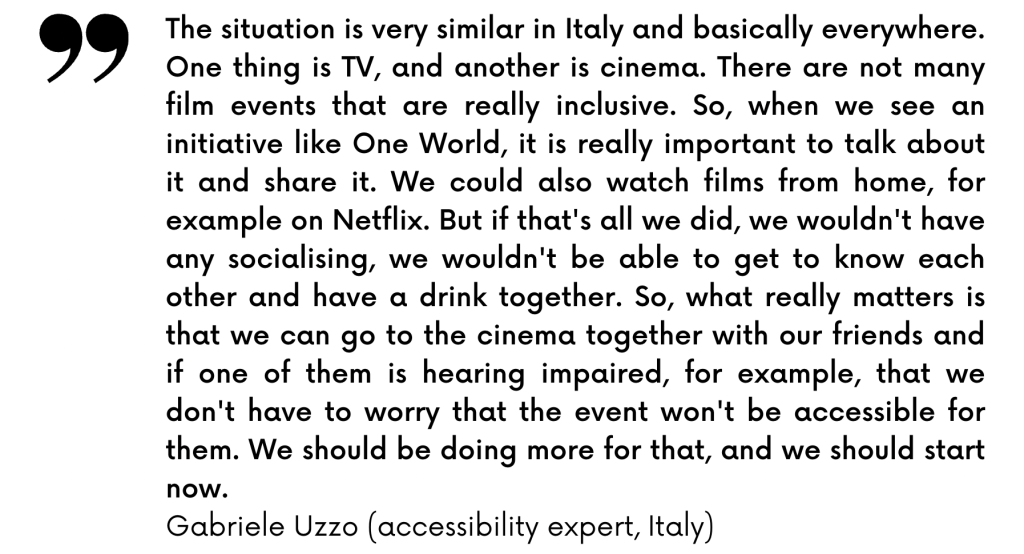
A hearing impaired director from Los Angeles, also a Ukrainian documentary filmmaker with experience directly from the war trenches

This year One World hosted 14 foreign and a large number of Slovak guests. Female and male filmmakers, human rights activists, writers, and other personalities met, got to know each other, and had a dialogue not only in the cinema halls, but also in informal meetings, planning campaigns for social change, and for example over a cup of tea at the Mareena Community Centre over the course of 7 days.
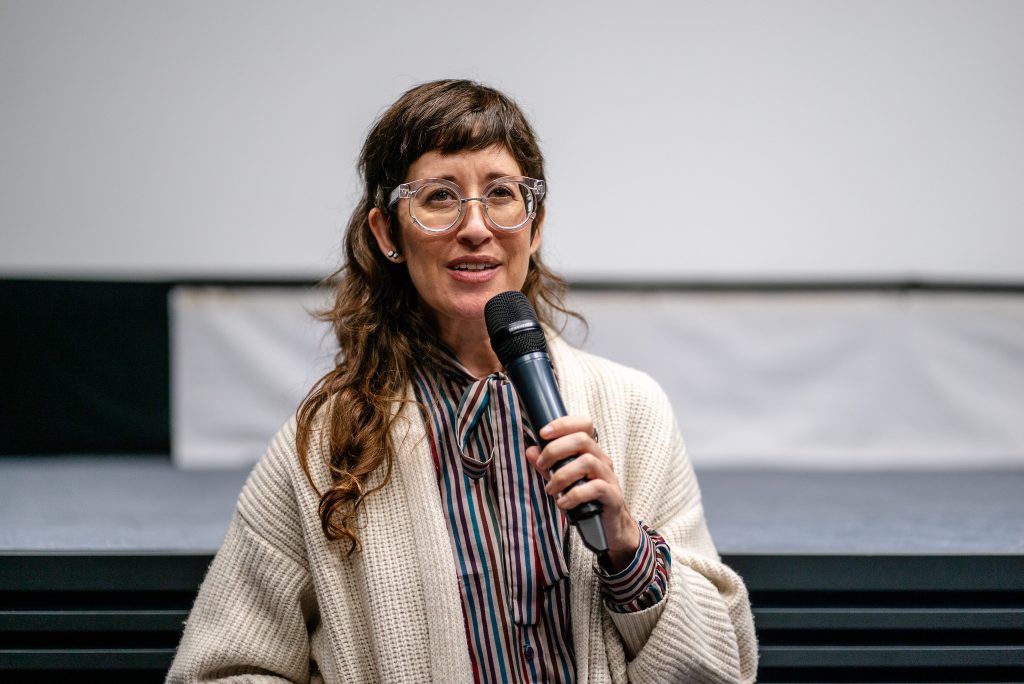
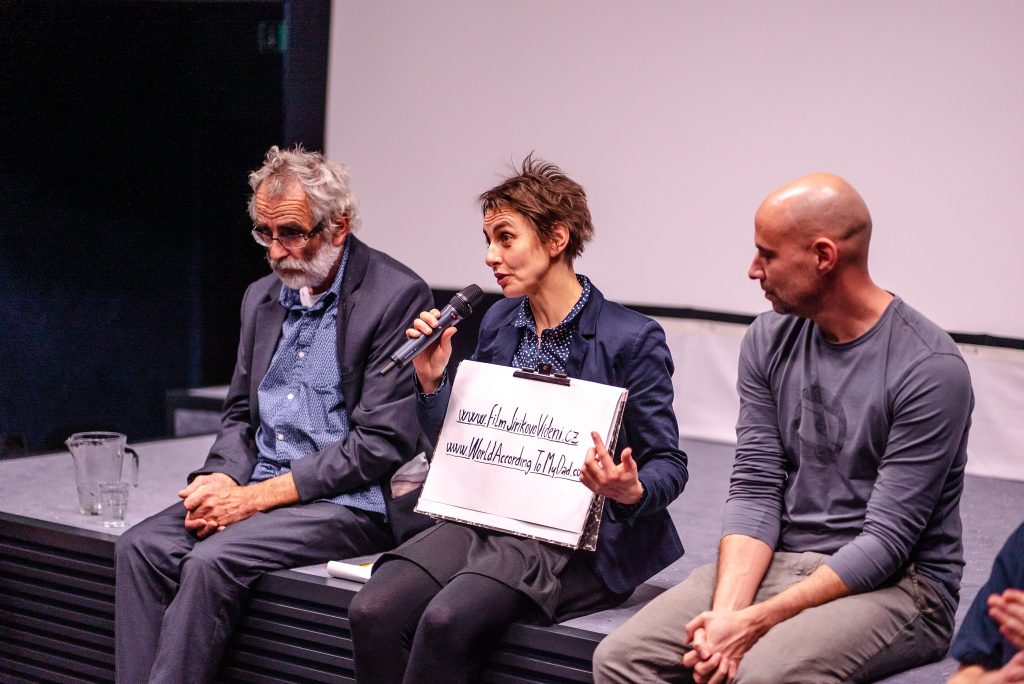
The star of the festival this year was the American documentary filmmaker Alison O’Daniel, who premiered her film The Tuba Thieves at Sundance, the largest documentary film festival in the world. Apart from her, the French director Faustine Cros, who unexpectedly discovered her grandfather’s partisan past, the Czech director and musician Marta Kovářová, who managed to organise a small climate protest in the streets of Bratislava together with her father, and many other personalities not only from the film world, also visited One World from 3 to 9 November. Ukrainian director Alisa Kovalenko presented her film about teenagers from Donbas, We will not fade away. As she herself is a soldier in the Ukrainian army in addition to making documentaries, she shared her experiences from the trenches in a streaming discussion with Denník N.

Winning Films
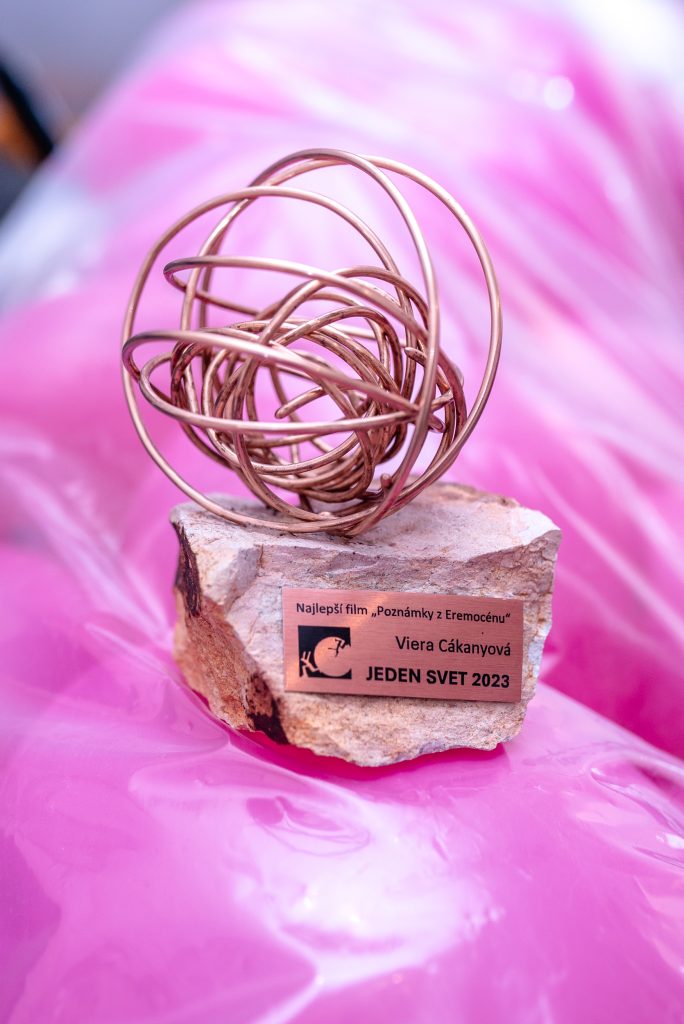
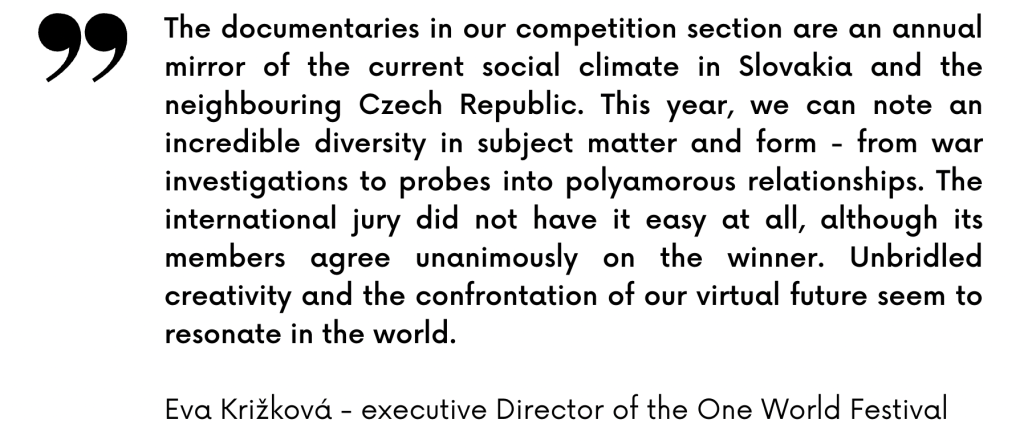
The winner of the Slovakia and the Czech Republic for Human Rights section was decided by a three-member international jury – Ukrainian director and producer Mariia Ponomarova, French director Faustine Cros and festival dramaturge and international film distributor from Serbia Petar Mitrič.
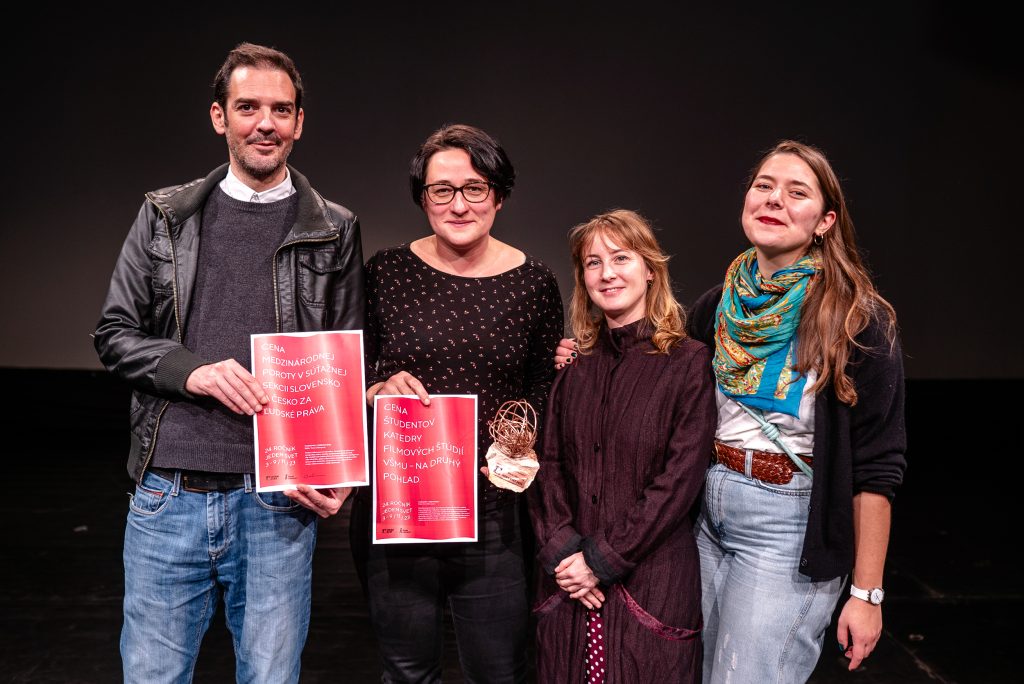
The international jury decided to award the main prize to the Slovak director Viera Čákanyová for her experimental documentary Notes from Eremocene. Viera Čákanyová made a film from a future that does not yet exist. In Notes from Eremocene, she holds a fictional dialogue with her future virtual self. In the film, she curiously and critically explores the potential of “blockchain” technology and artificial intelligence.
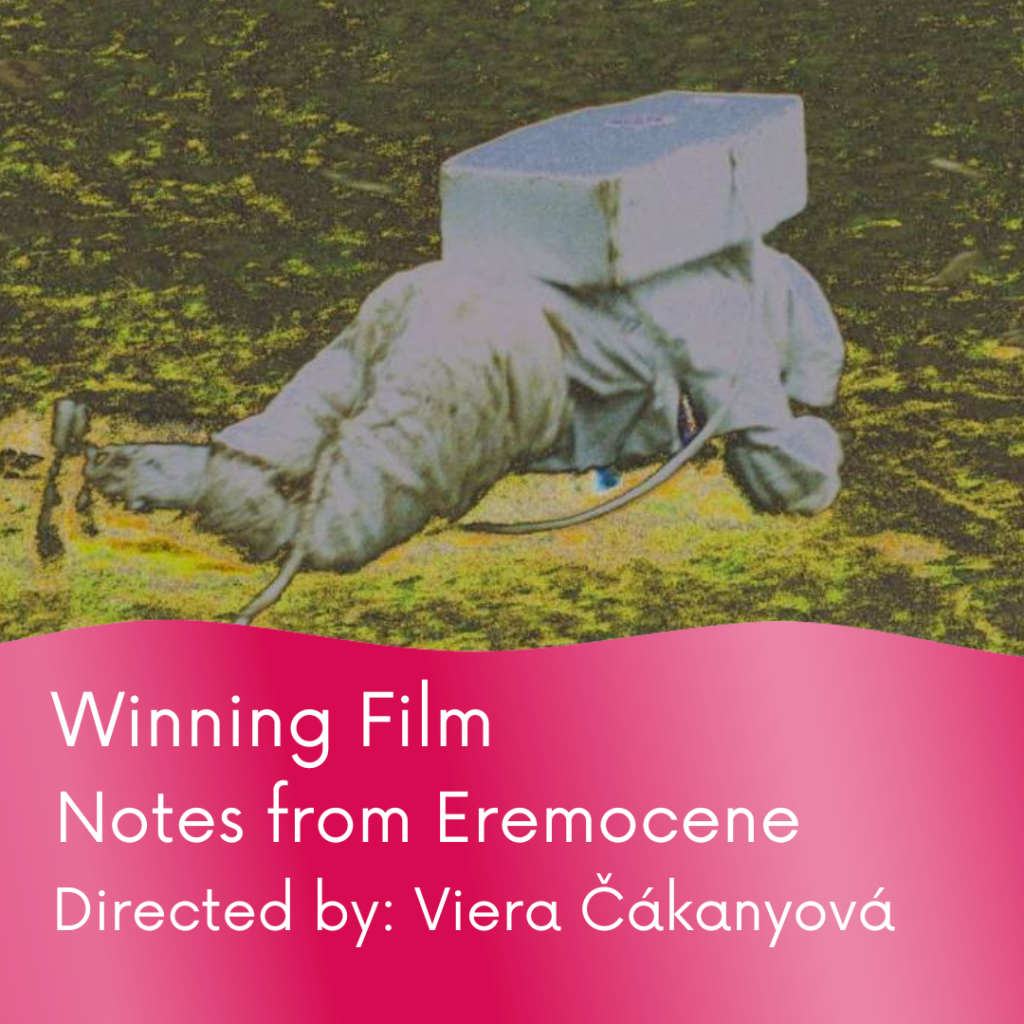
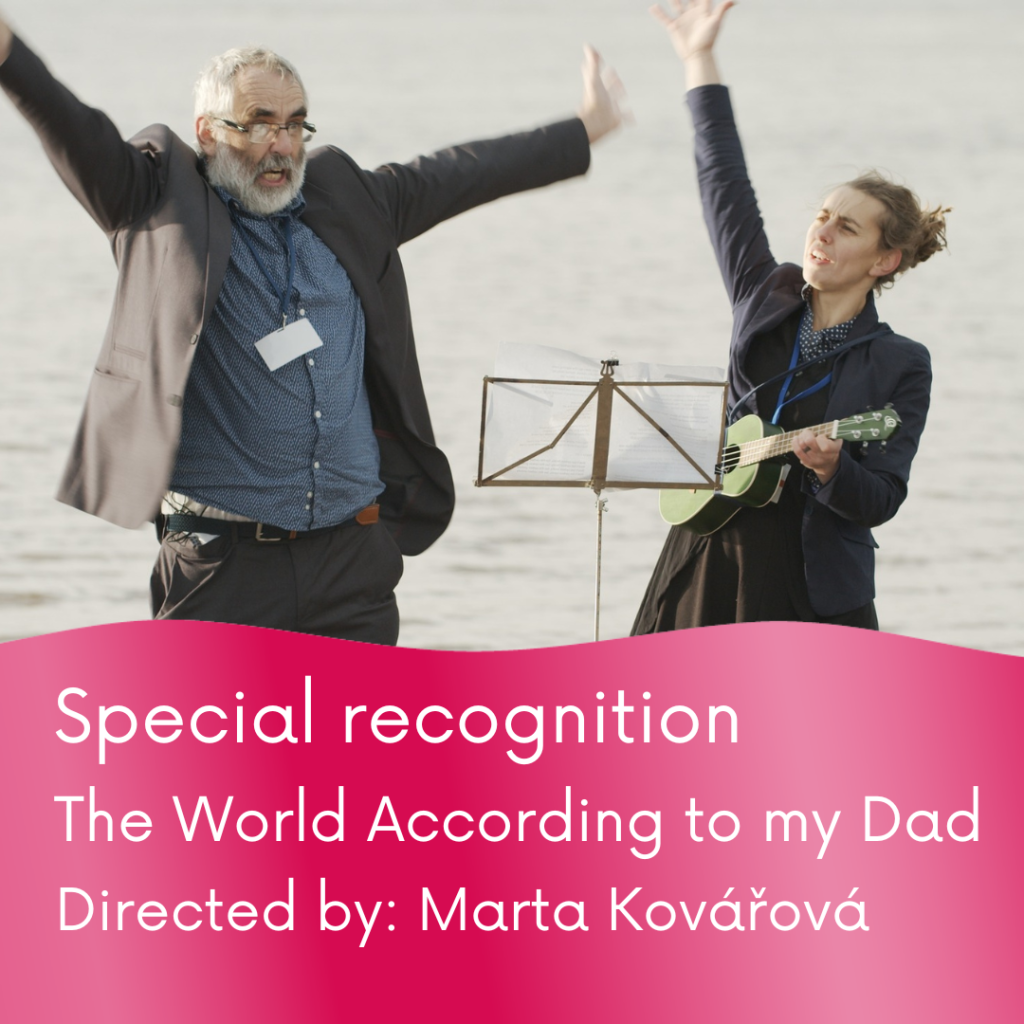
This year, the jury of One World also awarded a special recognition to the documentary The World According to My Dad, which the audience of One World could see in the festival premiere. In this film, director Marta Kovářová joined forces with her father, the physicist Jiří, to try to make some progress in the fight against the climate crisis, which at times seems to be a tilt at windmills.
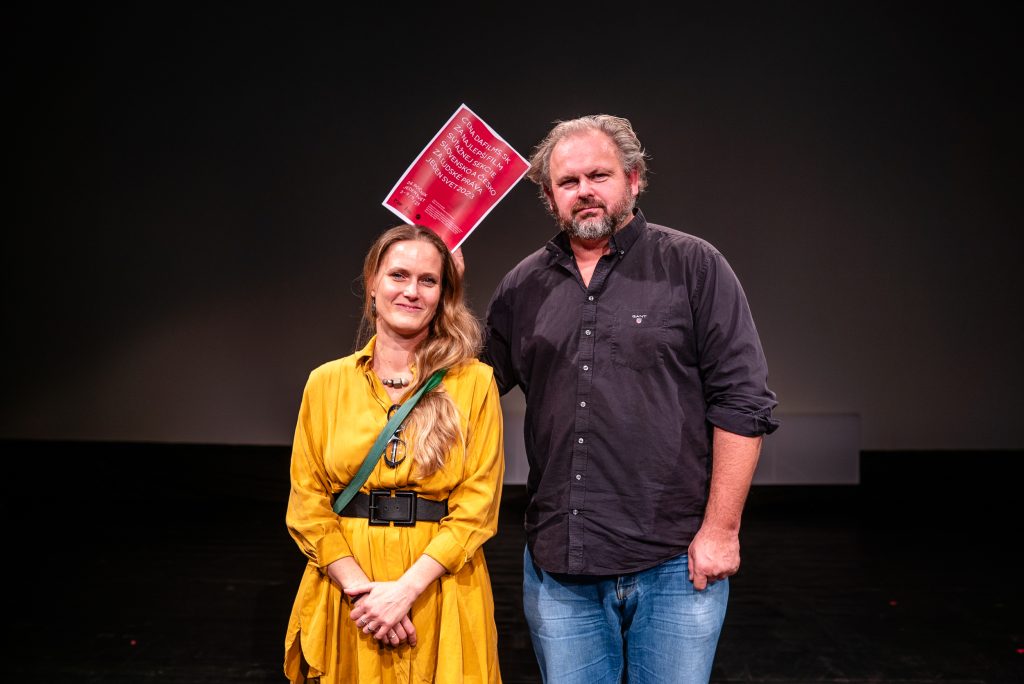
This year the competition films had the opportunity to win the DAFilms.sk award. The promo package for the film’s release on DAFilms.sk was awarded to the official Slovak Oscar nominee, Photophobia by directors Pavel Pekarčík and Ivan Ostrochovský.
One of the prizes at the One World Festival was decided by students from the Film and Television Faculty of the Academy of Performing Arts, who chose the winner of the At Second Sight prize. The five students of the Department of Film Studies, like the international jury, decided to give the award to the Slovak film Notes from Eremocene.
Last but not least, the festival visitors themselves decided on their favourite
In the audience competition, they could choose from three main films that were also accessible to visually and hearing impaired people – The Tuba Thieves, Aurora’s Sunrise and Is There Anybody Out There? The clear favourite was the timeless audiovisual work by hearing impaired filmmaker Alison O’Daniel, The Tuba Thieves.
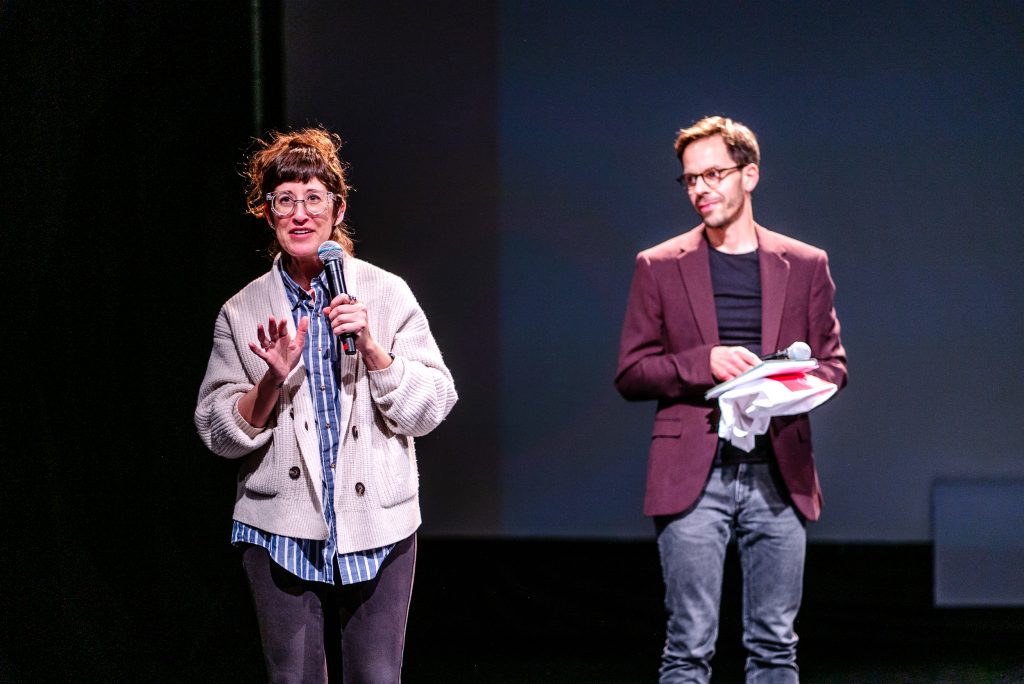
One World in Schools
Teachers had the opportunity again this year to sign up their classes to watch two documentaries online, which were also available with subtitles with adaptations for the hearing impaired people. The screenings were followed by live-streamed discussions on both films with the possibility of interpretation into Slovak sign language. Pupils actively participated in the discussions and directly asked the guests questions via the Slido online platform.
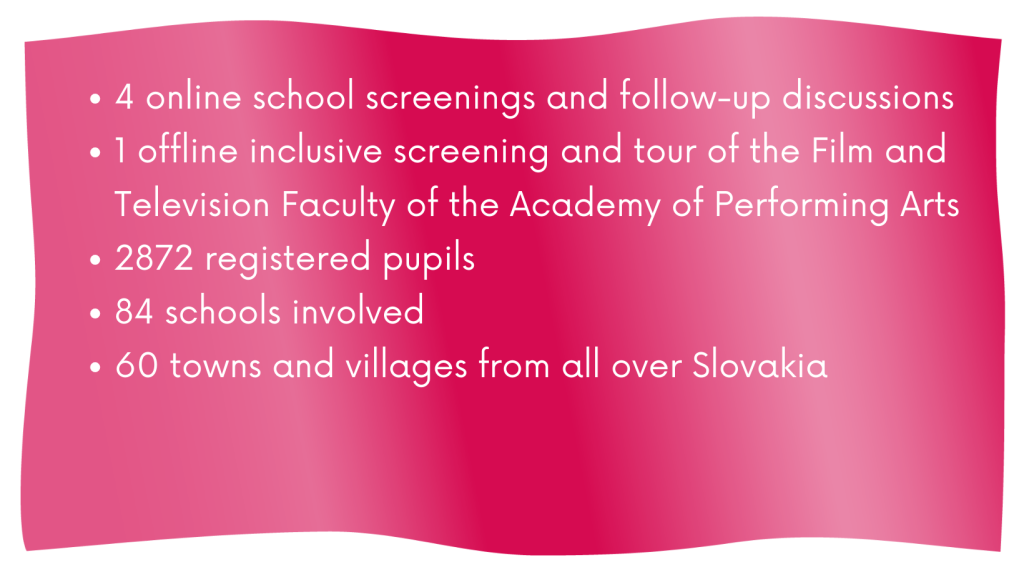
Film Inside Kabul follows the lives of Raha and Marwa, two young women from Afghanistan whose lives were completely changed when the Taliban regained power in the summer of 2021. This animated documentary is based on the hundreds of voice recordings that Raha and Marwa exchanged with journalist Caroline Gillet in the months following the event.
Meena Sulaimankhail, a medical student in Bratislava originally from Afghanistan, accepted the invitation to participate in the discussion. She has been living in Slovakia for 4 years, but in August 2021 she was on holiday with her parents in Kabul and faced the same questions as the protagonists of the film. She answered the pupils honestly to difficult but also smiling questions about life in Afghanistan, cultural differences, and her experiences.
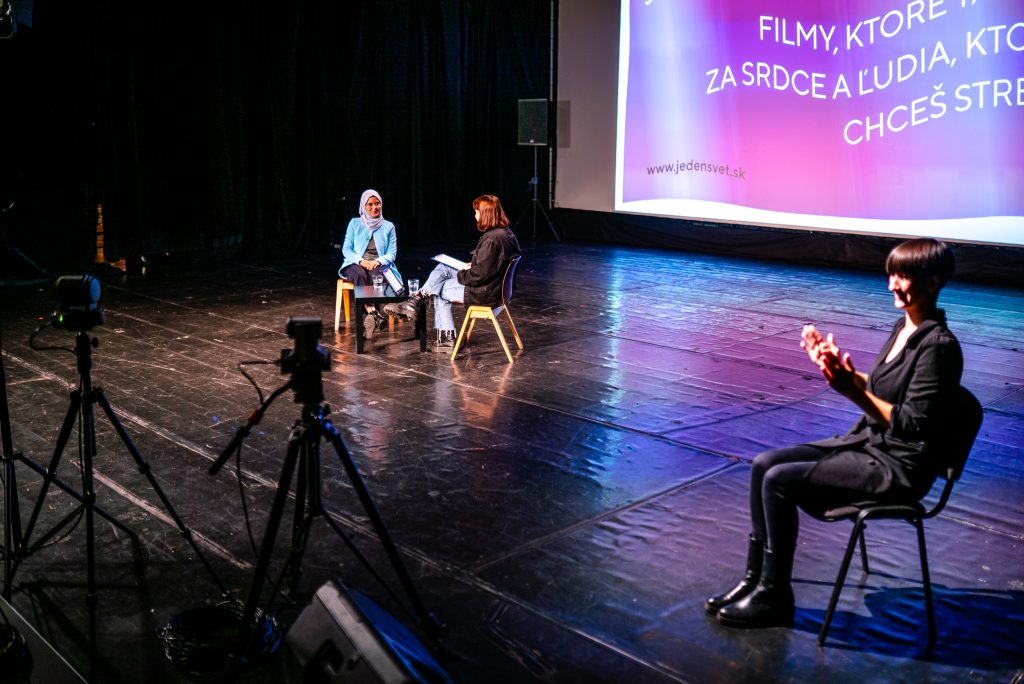
The life of the first Roma writer Elena Lackova and her great-granddaughter Alžbeta Ferencová was presented to the pupils in the film O BARIPEN Hrdosť by director Vera Lackova. Thanks to the writer’s authentic voice recordings and preserved archive footage, they were immersed with her in memories of the Holocaust and the communist dictatorship.
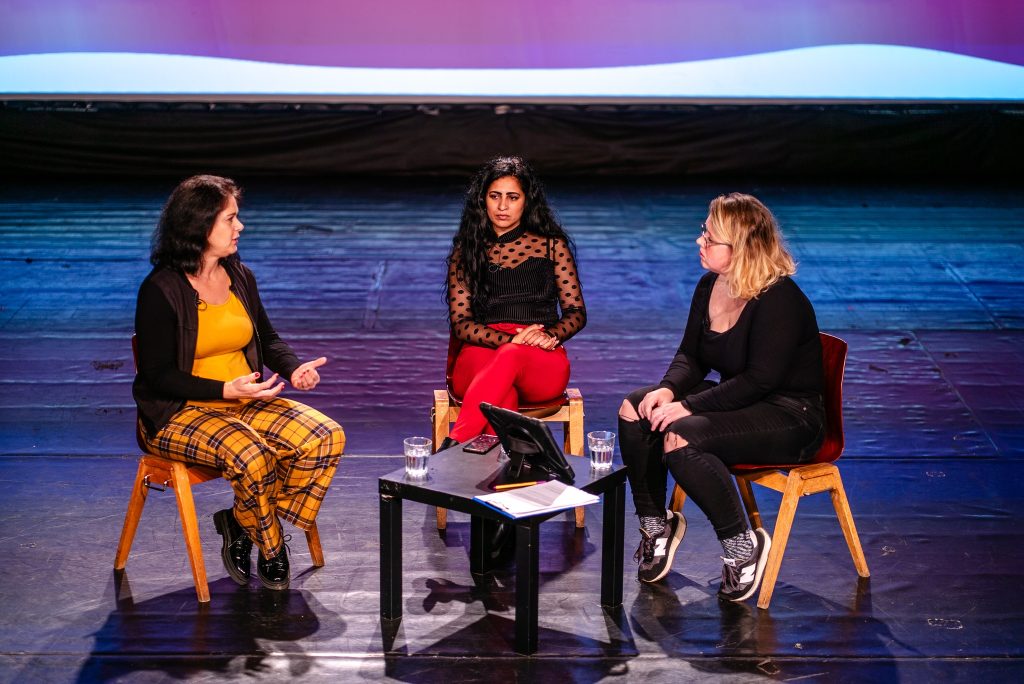
The experience of the film was complemented by a discussion with Michaela Mudroňová, coordinator of career counselling of the organisation Človek v ohrození, and Ingrida Oláhová, a Roma woman who shared her difficult but inspiring story of her journey from the loss of her home, to standing on her own two feet, to finding an education and a job that fulfils her.
The screening of the documentary film The Tuba Thieves by the American hearing impaired director Alison O’Daniel at the Klap Cinema at the Film and Television Faculty of the Academy of Performing Arts was also adapted for the needs of people with hearing, speech impaired or autism spectrum disorders. The 45 pupils who came to the screening had the opportunity to discuss the film directly with the director after the screening. Alison enjoyed the discussion and was grateful for the sophisticated questions she said she had not received from the audience, even at major festivals abroad.
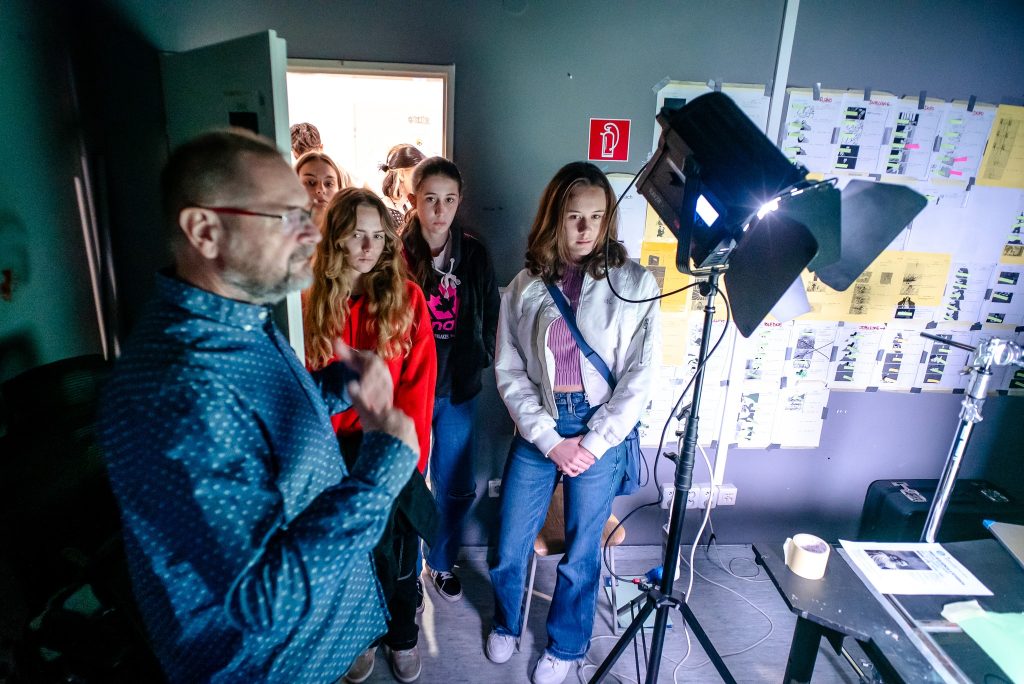
The pupils then, in cooperation with the Film and Television Faculty of the Academy of Performing Arts, took a tour of the studios and classrooms of the faculty, where they found out how films are made, sound is edited, and animation is done. We hope that the experience will motivate some of them to study film at the Film and Television Faculty, which is open to active inclusion and accessibility for all.
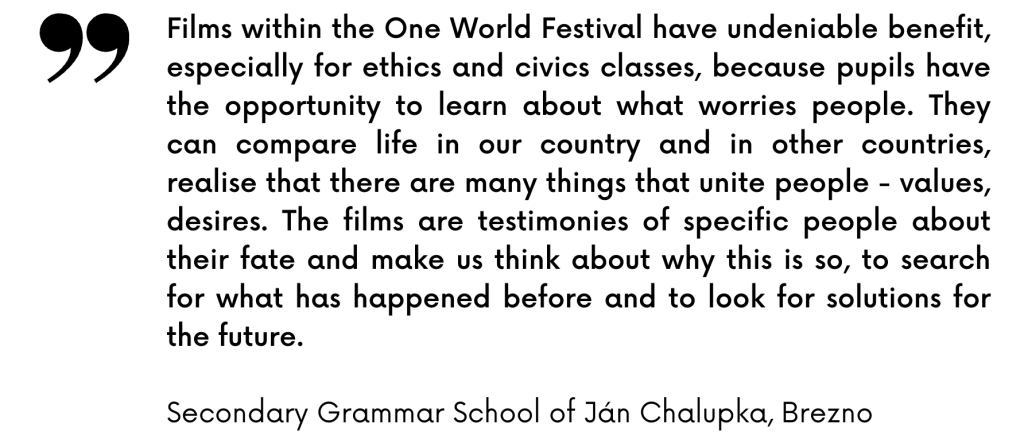


Visibility of the festival
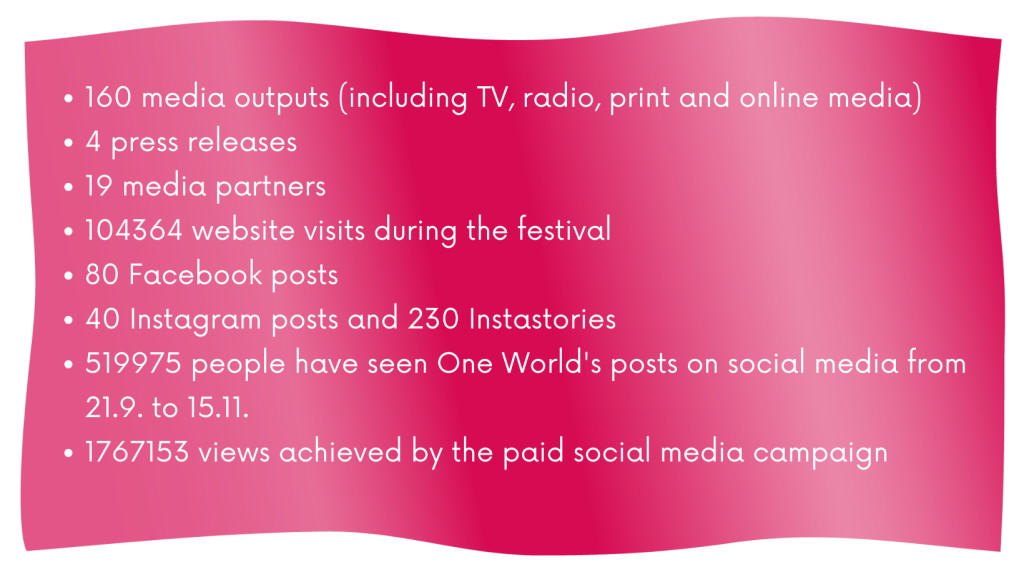
This year, One World opened sensitive topics live and involved viewers from all over Slovakia through streaming
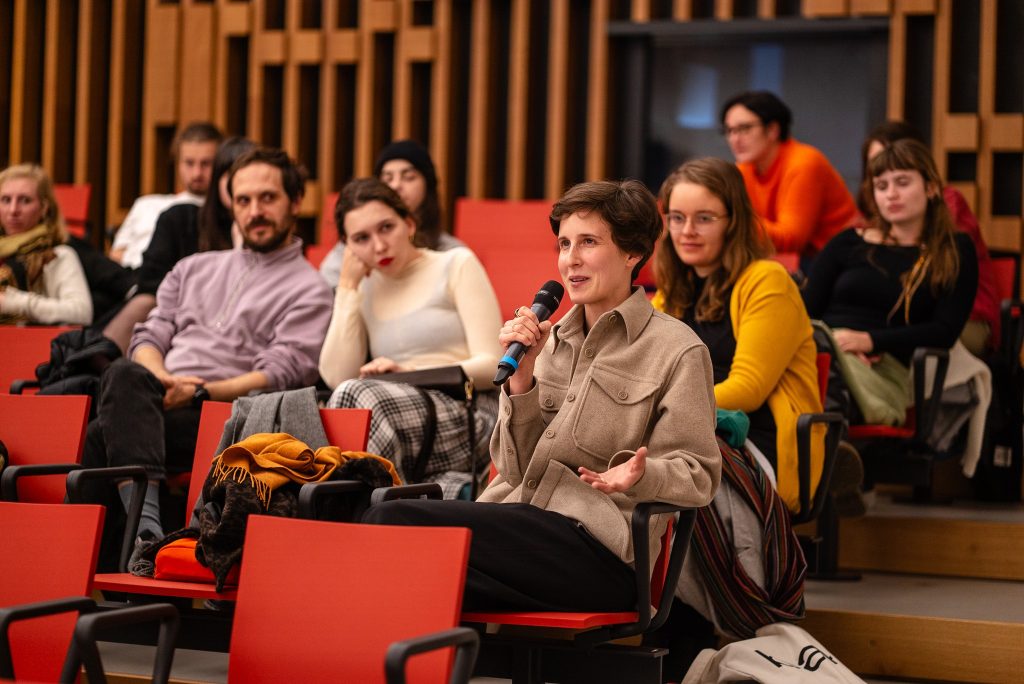
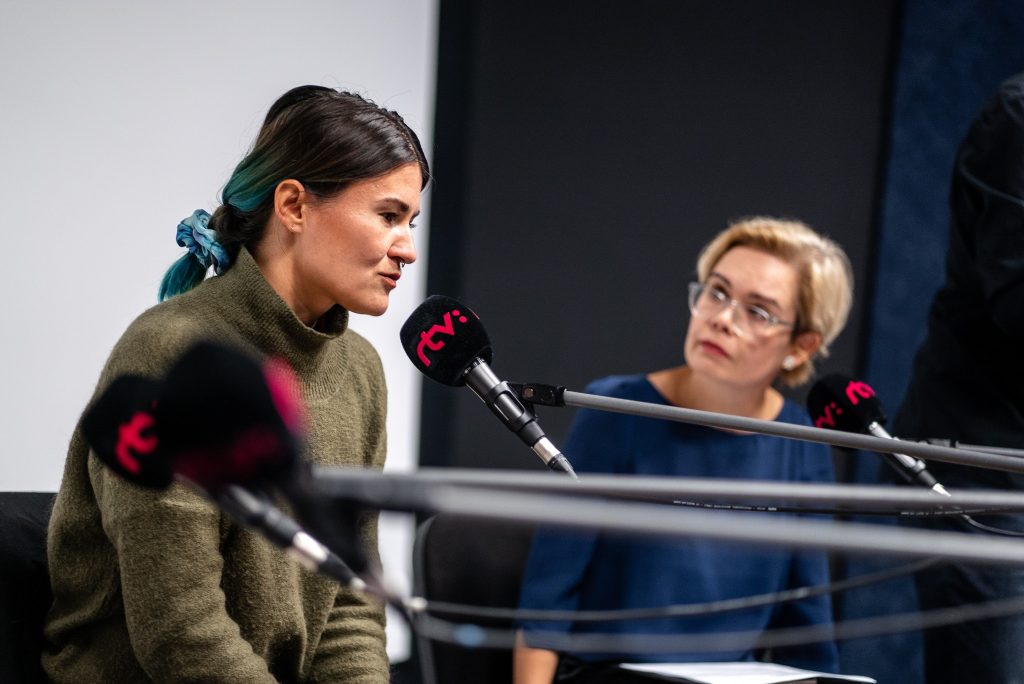
Comprehensive debates on themes that resonate in society and appear in films, issues of democratic society, human rights and the relationship between people and the environment they live in, are already an inherent part of One World. After three years of focusing on online debates because of COVID19, One World in 2023 saw most of the debates take place in reverse – live, with an emphasis on live interpersonal contact. Audiences appreciated this and were not afraid to actively enter the discussions with their own questions, suggestions, and stories.
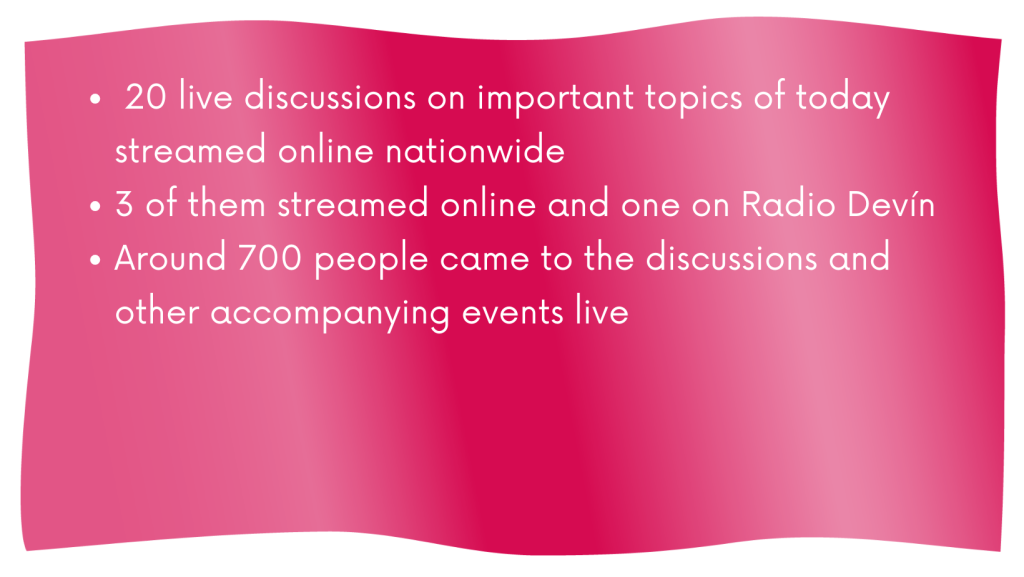
Industry programme Days of Change for Slovak filmmakers and audiences interested in social change
The industry programme, called Days of Change, was held for the third time as part of One World. Its aim is to connect filmmakers with potential donors, non-profit organizations, institutions, media, policy makers and various experts on specific topics, while also introducing the Slovak audience to the topic of impact, the social impact of film, in real depth. All this through lectures, case studies and discussions.
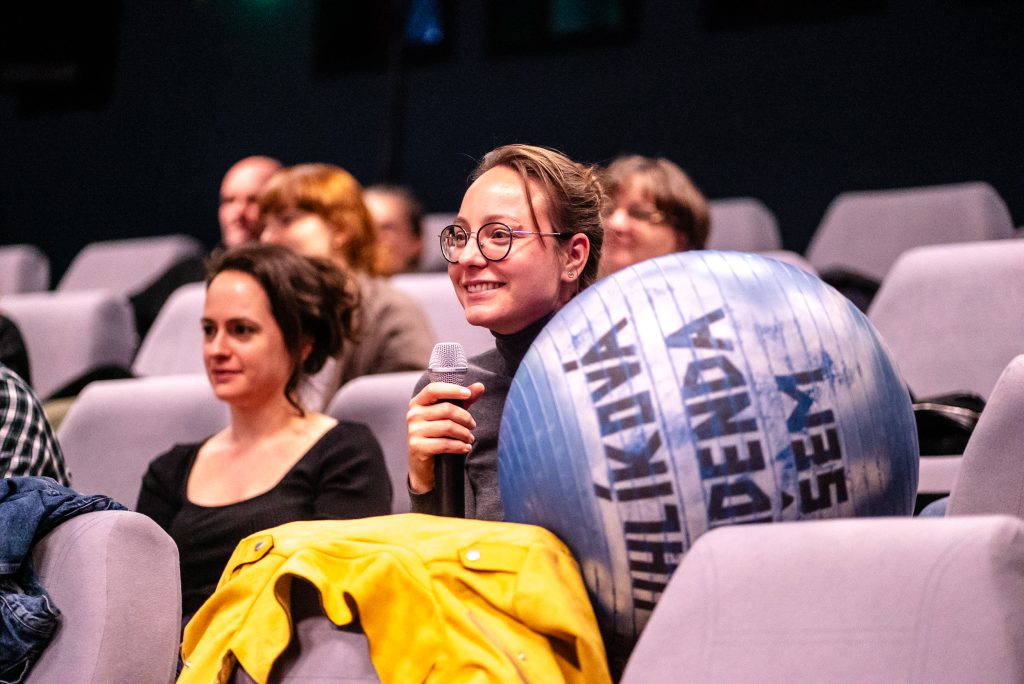
The Industry programme Days of Change consisted of several parts. For filmmakers and the general public interested in the topic, there were lectures entitled The social change and Film, The social impact of film and the film distribution, and Meaningful partnerships for film. Another part of the programme consisted of screenings of three documentary films, within the festival programme, followed by discussions with their filmmakers, who gave more insight into the topic of the film and their impact campaign and activities related to the film. The films were The World According to my Dad, The Hamlet Syndrome, and Invisible Countries.
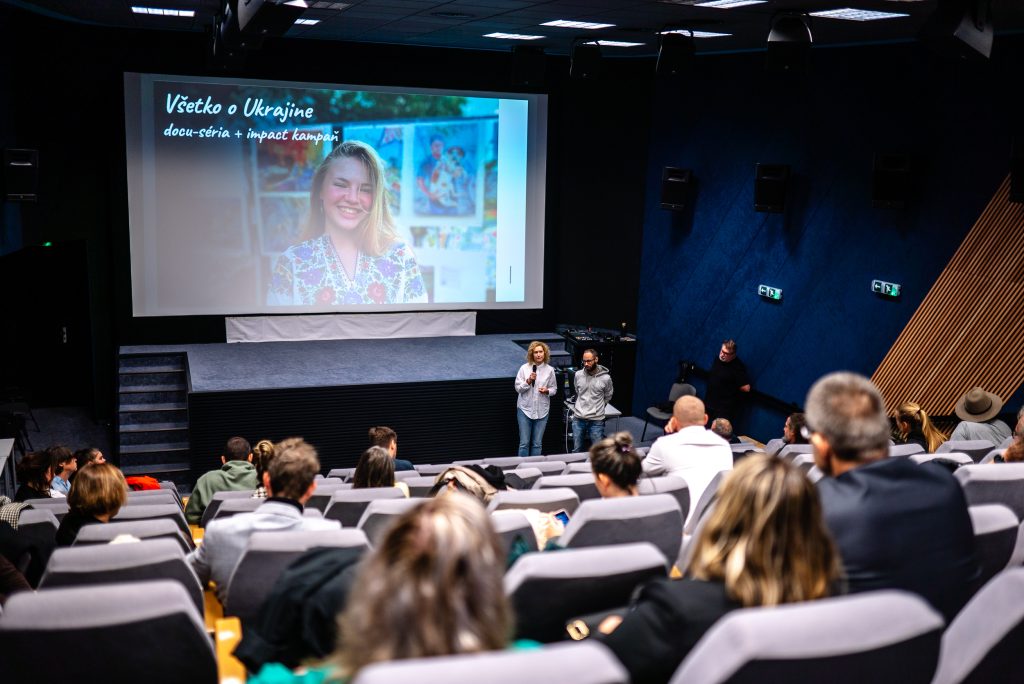
From 6 to 9 November 2023, the Days of Change workshop was held for filmmakers and their specific film projects, who, under the guidance of experts on the topic of film impact and the social impact of film, Hungarian producer and distributor Orsolya Komlósi, film producer Eva Pavlovičová and Alexandra Poláková Suchalová, university lecturer and researcher, created their own impact campaigns with an impact on society.
In 2023, a total of six film projects were submitted to the workshop, from which three documentaries were selected: The Valley of Widows (authors Miro Jelok, Katarína Jonisová), All About Ukraine (authors Zuzana Chadimová, Pavol Kohút, Miko Angelov), Daniel, Victim of Fascism (authors Eduard Cicha, Dominik Jursa, Barbara Janišová Feglová, Roman Pivovarník).
The outcome of the workshop and the work of the representatives of the film projects was a public presentation of the projects and their impact campaigns, in the presence of experts on the topics and a jury composed of Diana Tabakov, working in Czech Television, founder of the DAFilms.cz platform, Dária Hamajová, Director of the Department of Creativity and Education of the Ministry of Culture of the Slovak Republic, and Dominik Hronec, from the distribution company Film Europe.
After the presentations, the representatives of the film projects met separately with experts on the topics that their films and impact campaigns were related to. It was a space to get to know the film projects more deeply and possible working connections for the future.

The experts who took part in the public presentations of the projects and subsequently discussed with the filmmakers are: doc. Mgr. Tomáš Lánczos, PhD, Department of Geochemistry, Faculty of Natural Science, Comenius University in Bratislava; Mgr. Peter Vojtko, PhD., Director of the Department of Geology, Ministry of the Environment of the Slovak Republic; Mária Kadlecová, MILK Agency; Lenka Putalová, global education, Človek v ohrození; mjr. Mgr. Jakub Gajdoš, National Crime Agency, Presidium of the Police Force, Ministry of the Interior of the Slovak Republic; Sandra Polovková, Director of the organization Post Bellum; Maroš Chmelík, Centre for community organizing; PaedDr. Ján Orlovský, Director of the Migration Service, Ministry of the Interior of the Slovak Republic; Petra Achbergerová, Director of the Department of Migration and Integration, Migration Service of the Ministry of the Interior of the Slovak Republic; Amra Sarajlič, Department of Migration and Integration, Migration Service of the Ministry of the Interior of the Slovak Republic; Ivan Brezina, Specialist for Social and Behavioural Change, UNICEF.
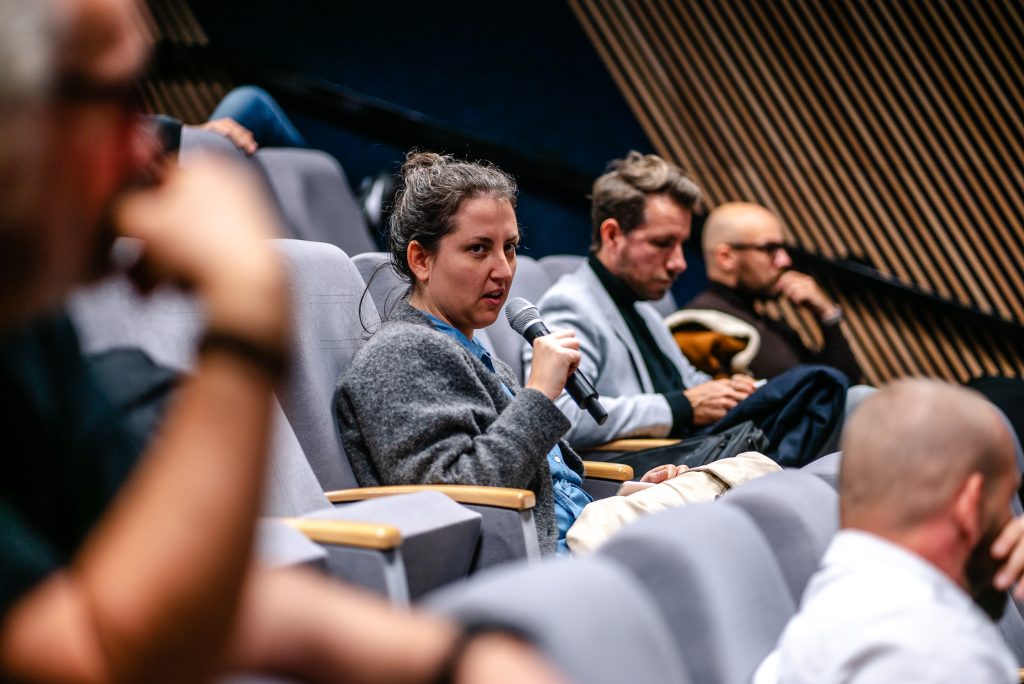
The workshop within the Days of Change industry programme did not have only one winner, all participants won valuable prizes based on the jury’s decision: The Valley of Widows – accreditation for filmmaking at the Movies that Matters film festival in the Netherlands, as well as two screenings of the film at the Film Europe cinema in Bratislava and the Edison cinema in Prague; Daniel, Victim of Fascism – production of a six-part podcast by the ZNELO podcast platform; All About Ukraine – further consultation of the project and the impact of the impact campaign with the film’s tutor, Orsolya Komlosi.
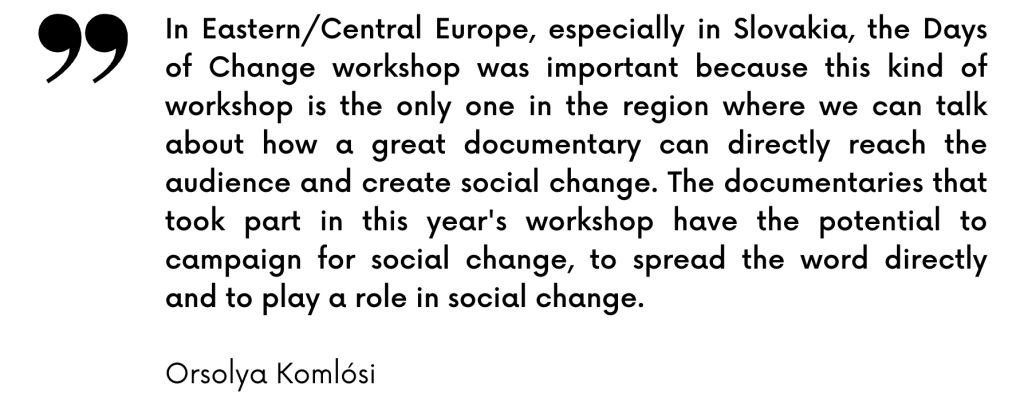
We care about people and the environment
One World puts emphasis on the ecological course of the event. It includes films that address environmental challenges and the climate crisis and organises accompanying events to accompany them. The festival production strives as much as possible to ensure that all advertising and marketing products meet the standards of ecological production and sustainable consumption.
Last year, after consultation with the audience, the festival organisers decided to withdraw from the production of any gifts and promotional items altogether, and this year they have not abandoned the idea of zero production of unnecessary products.
We encourage our international guests to travel by train and many of them have responded positively and understandingly and have used the railways for their journey.
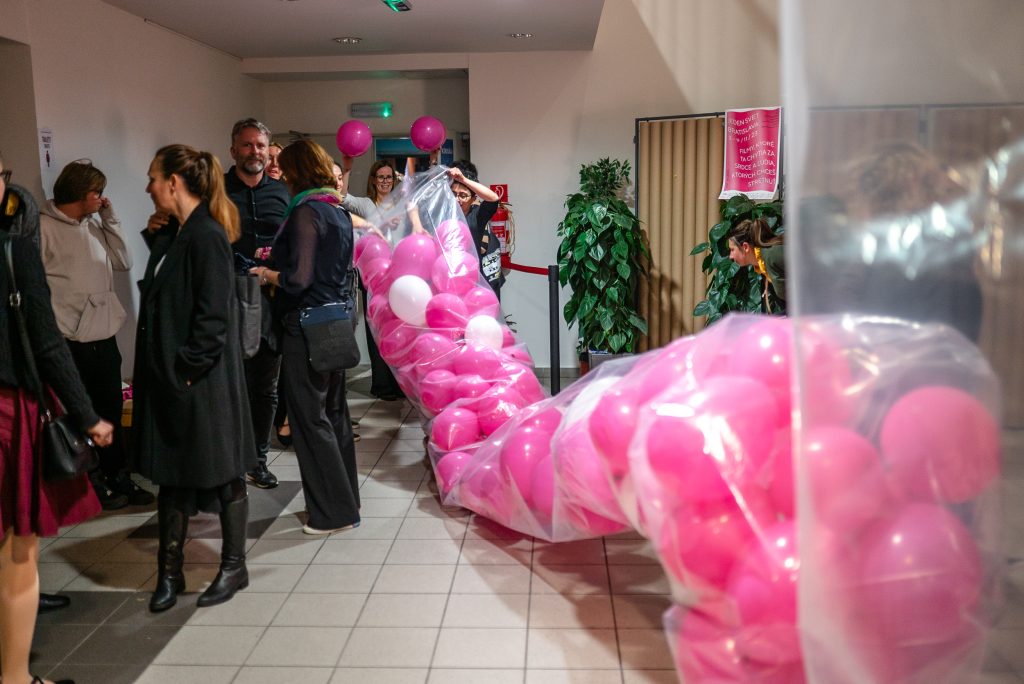
All the balloons used in the experimental screenings of the film The Tuba Thieves were subsequently used in the creation of the art installation Unity of Breath.
One World brings together those who share the same view of the world and society
The One World Festival is unique in the large number of organisations, institutions, academic institutions, movements, and individuals involved. It enables them to participate in the preparation and implementation of the festival, whether financially, by donating in kind, by providing information, or by contributing to the programme and content of the festival. It is important to highlight the common interest of partners to be part of a broader movement involved in addressing social and human rights challenges in Slovakia and the world.
This unique characteristic, with its emphasis on ethical fundraising and collaboration, has been a long-standing interest not only of the festival, but also of the main organiser, the non-profit organisation Človek v ohrození.
Thanks to partners
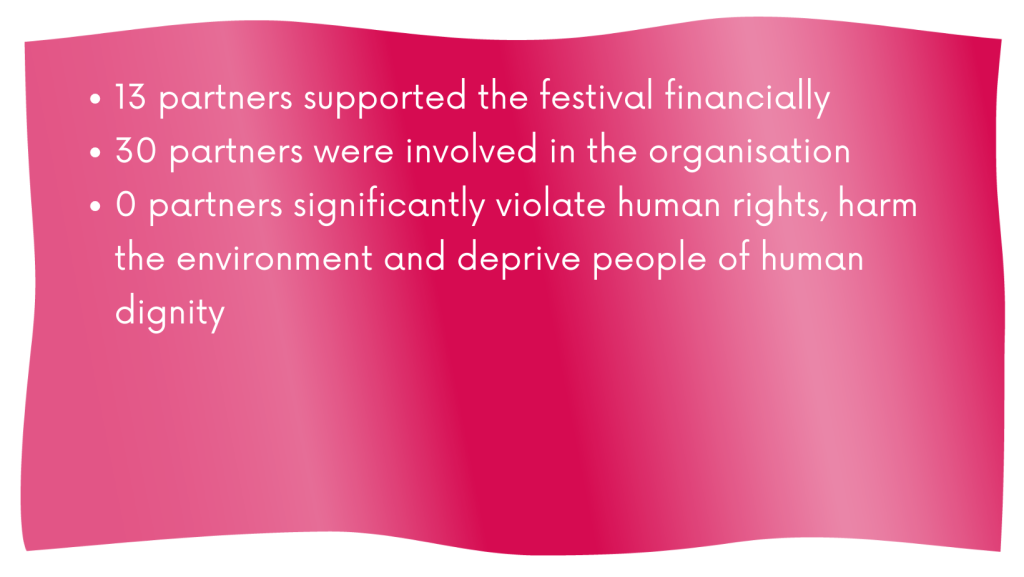
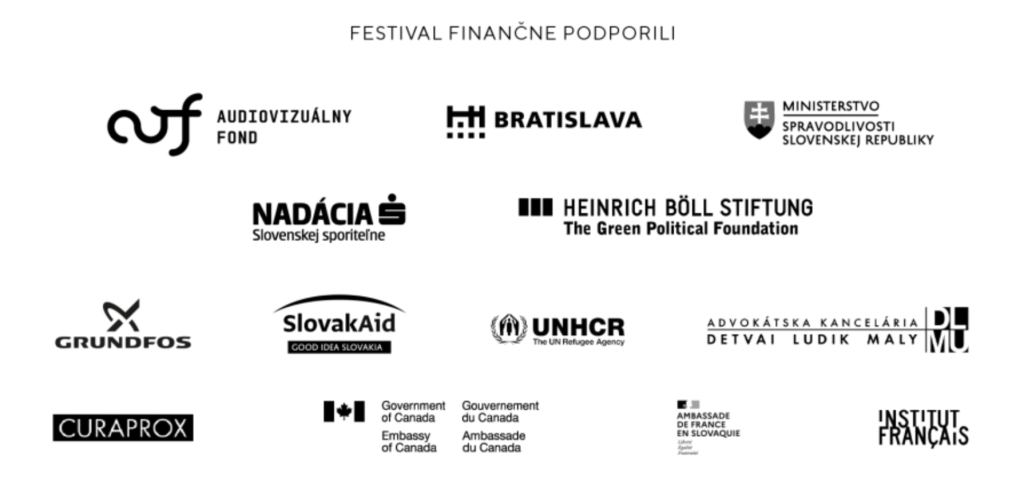
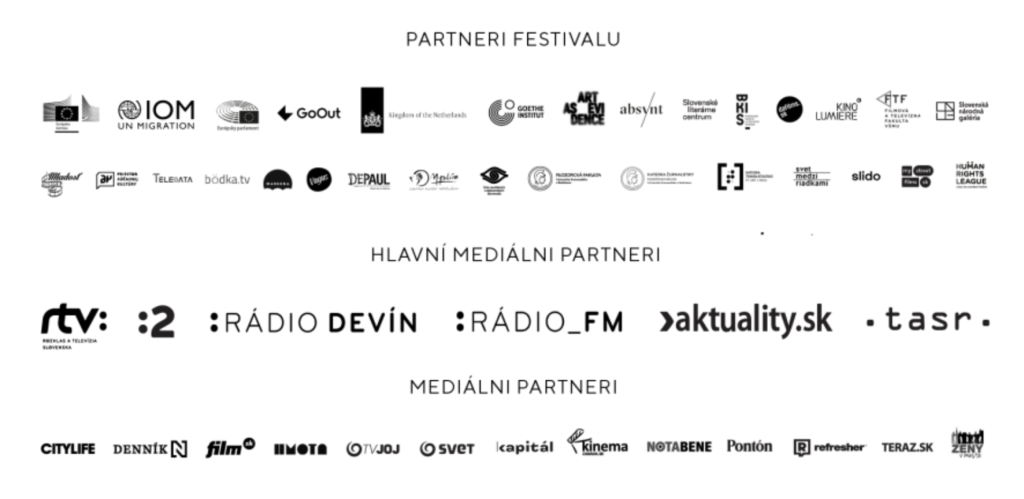
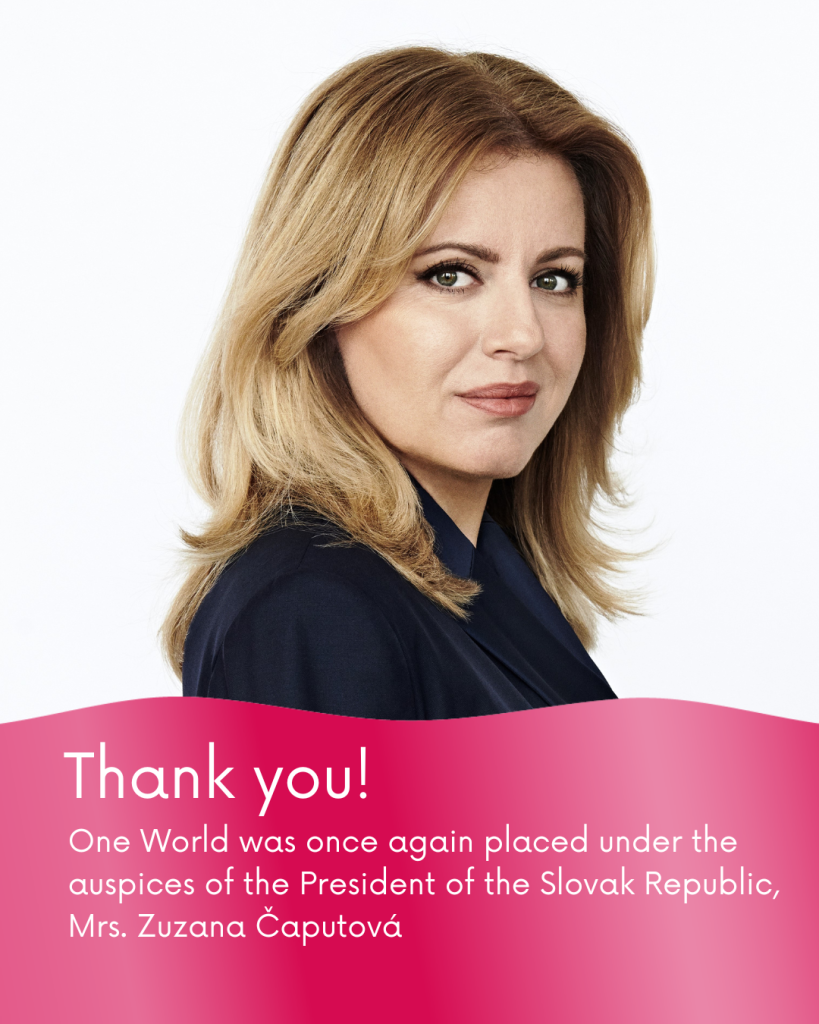
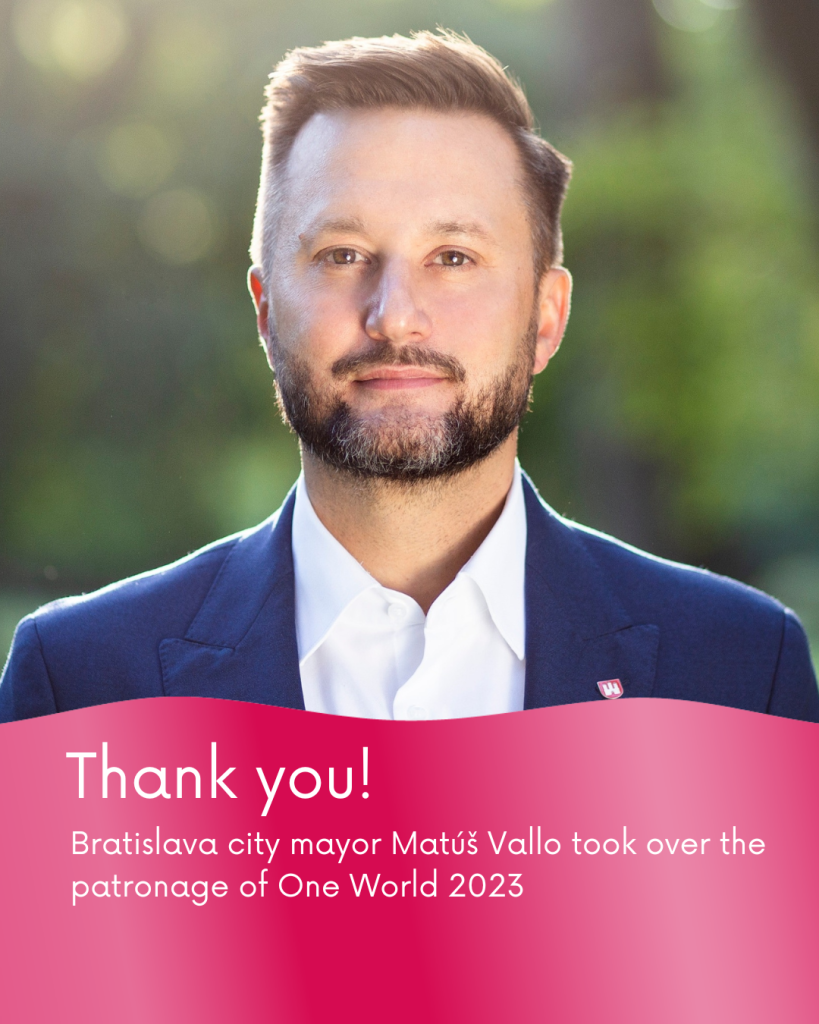
Organisers

